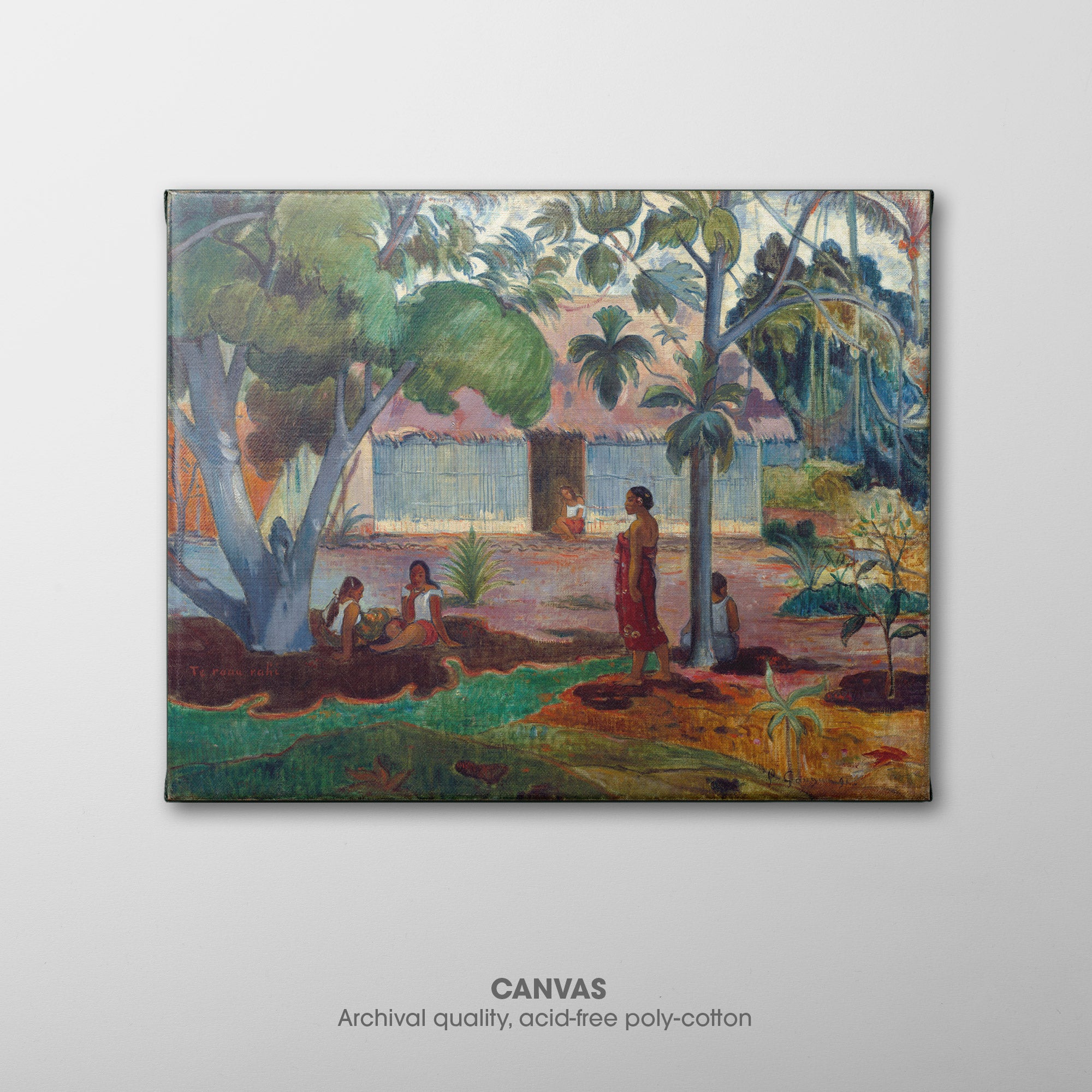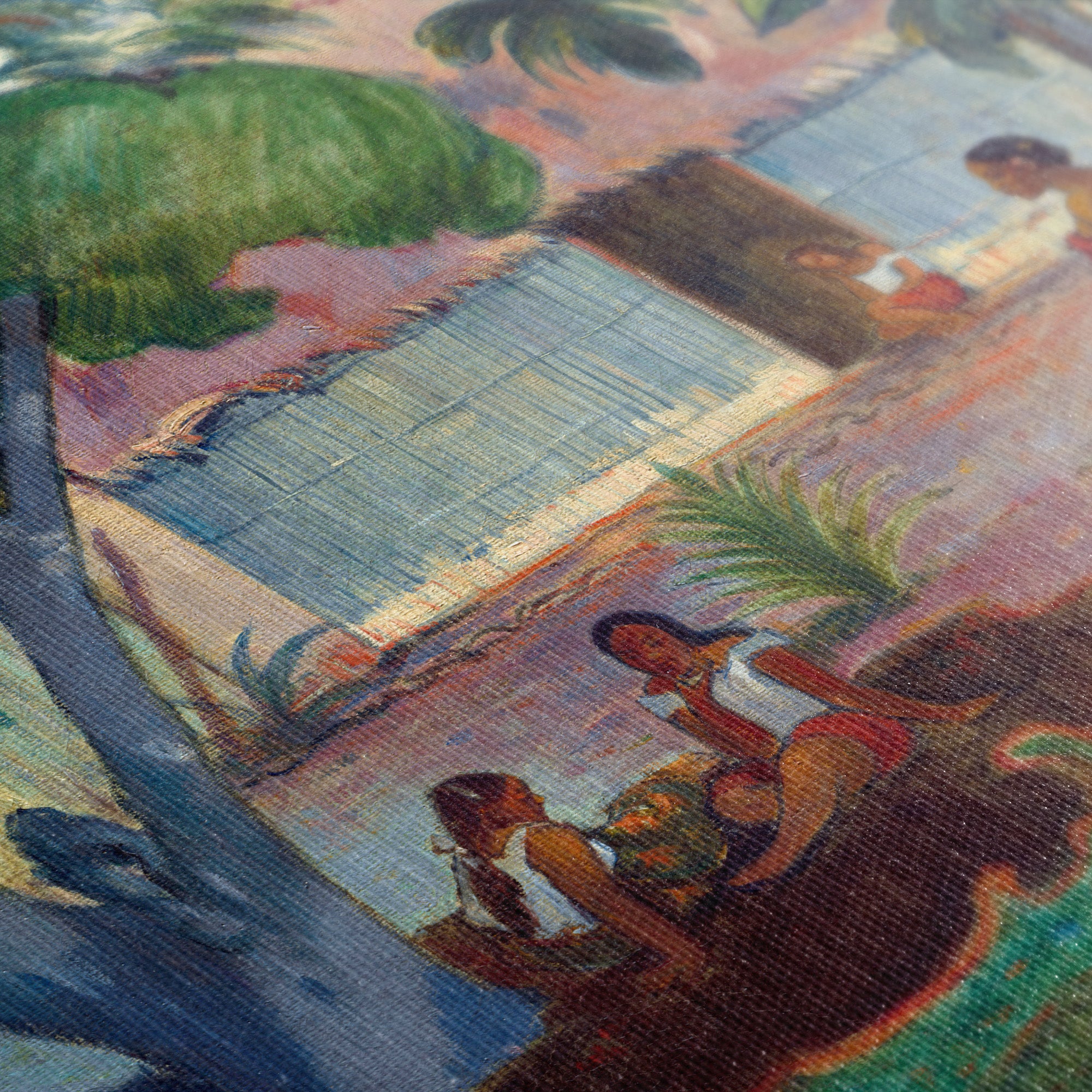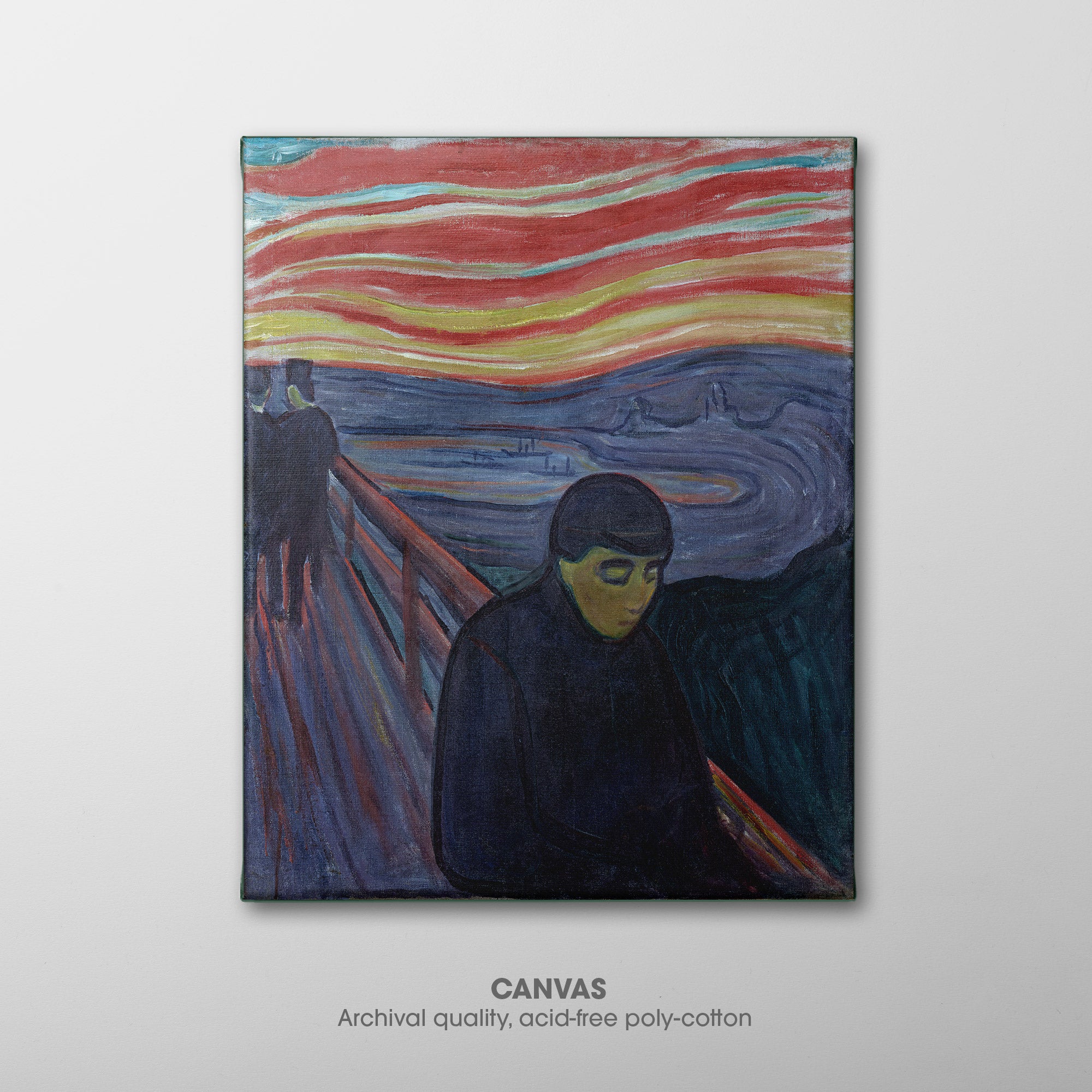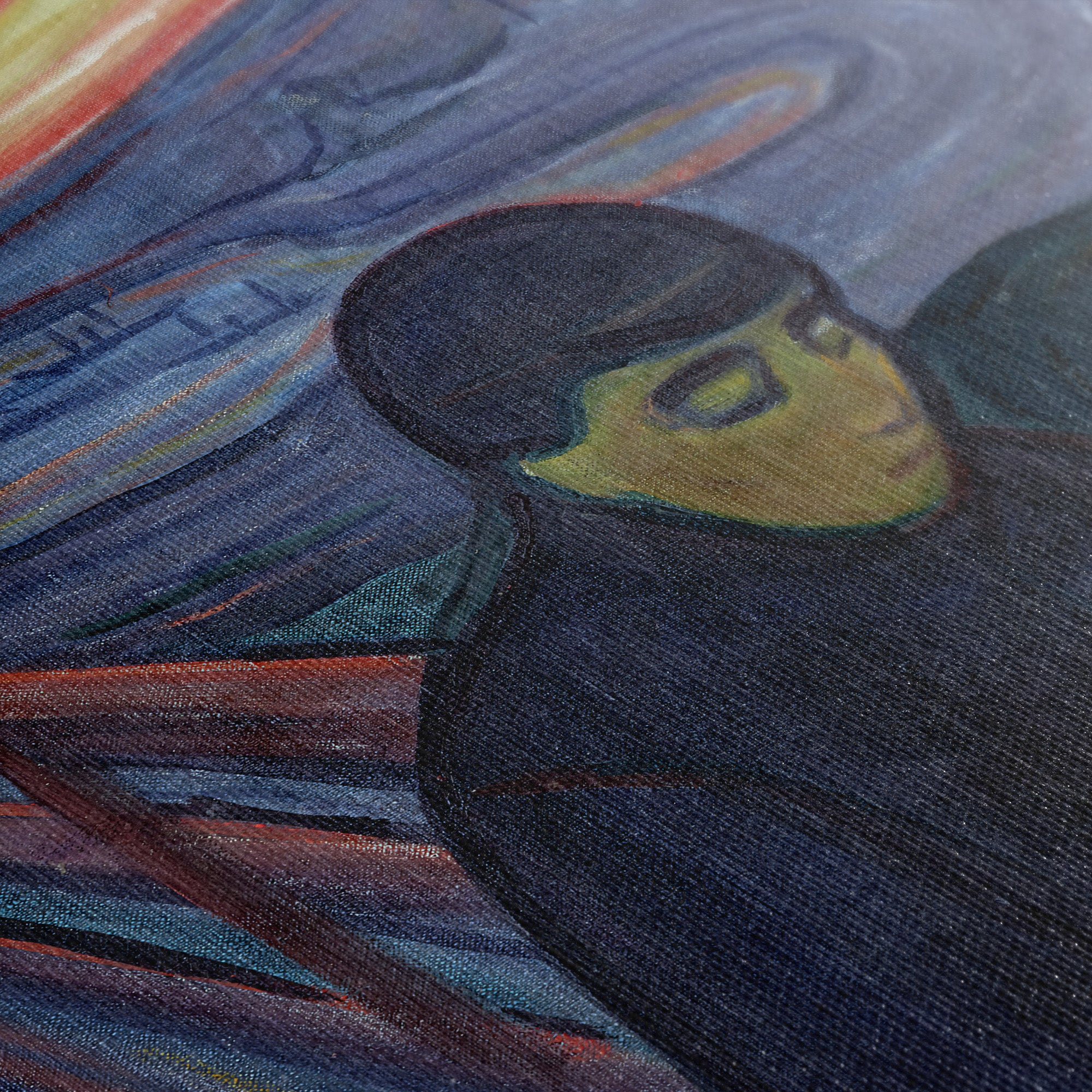Stretched canvas art is created from a giclée print on canvas (instead of paper), and like a traditional painting, the canvas is hand-stretched over a solid wood frame. It can be mounted in a float frame, or displayed on its own. The sides of the canvas are finished in a solid color that complements the artwork, creating a modern masterpiece ready to hang on your wall, without a frame.
-
The Scream (1910) ☲ Munch ☵ Canvas
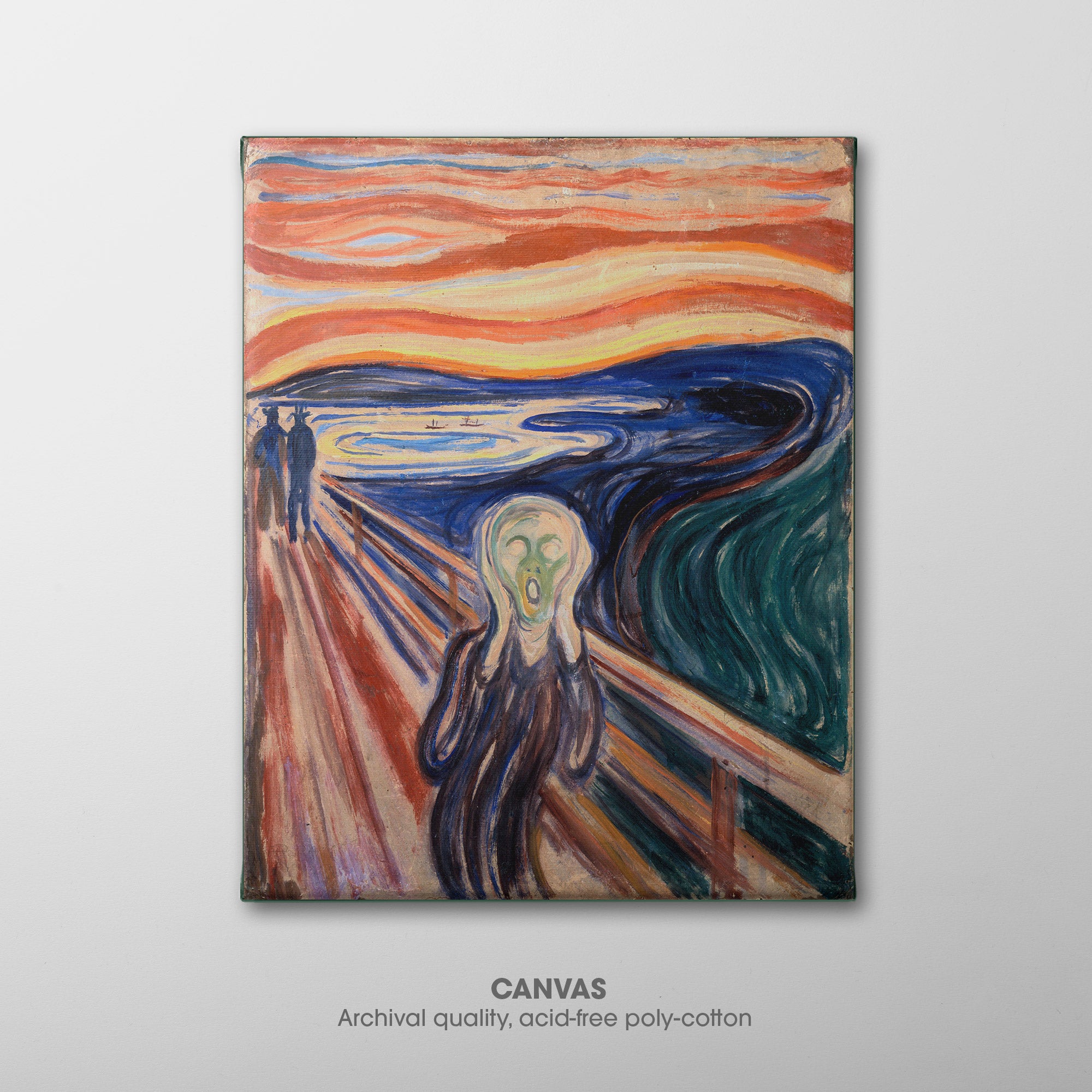
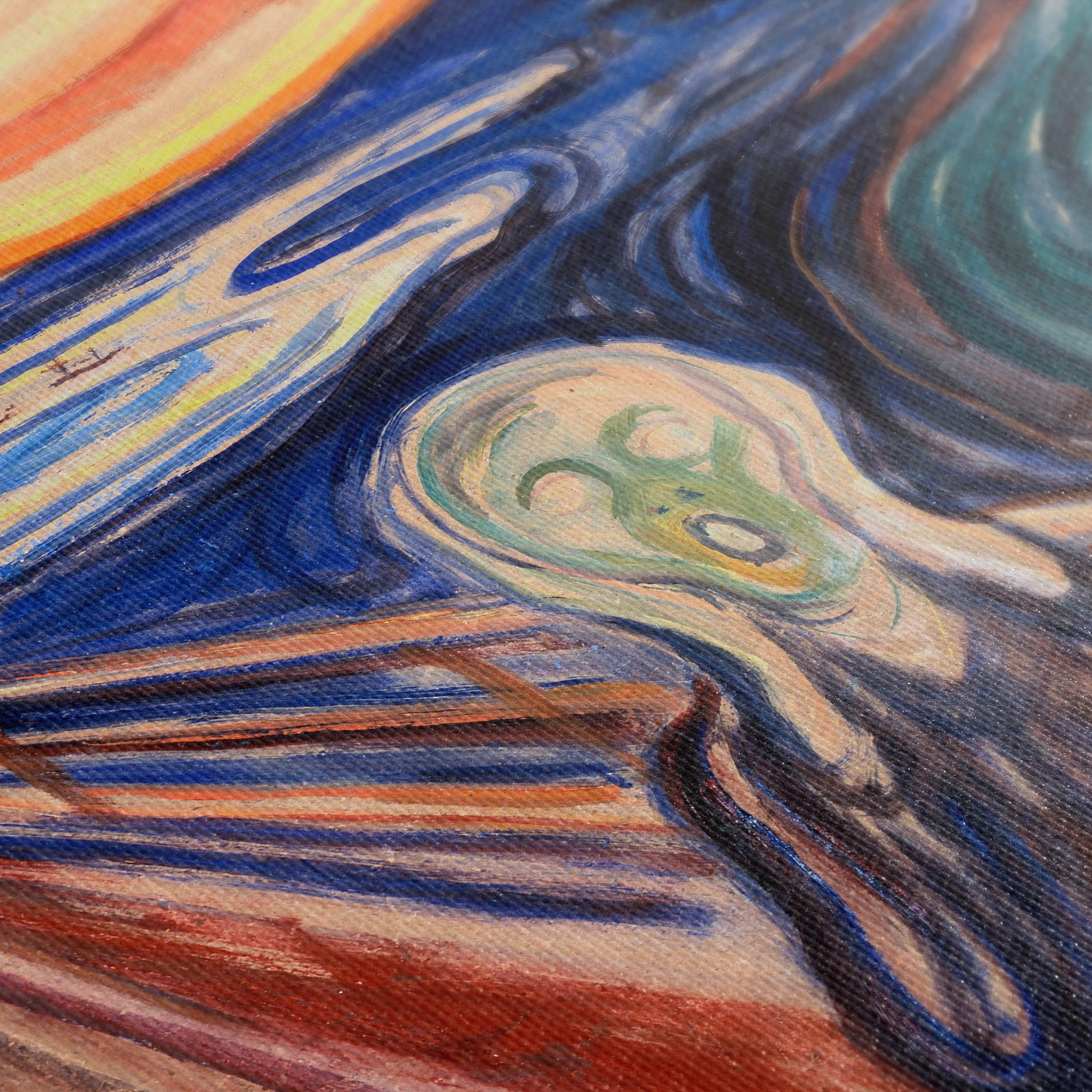 The Scream (1910) by Edvard Munch is one of the most iconic images in art, symbolizing anxiety, surprise, shock, terror and despair. The Norwegian name is Skrik (Scream), and the German title when first exhibited was Der Schrei der Natur (The Scream ➵
The Scream (1910) by Edvard Munch is one of the most iconic images in art, symbolizing anxiety, surprise, shock, terror and despair. The Norwegian name is Skrik (Scream), and the German title when first exhibited was Der Schrei der Natur (The Scream ➵◰ Canvas Reproductions
⧈ Framed Art Prints -
Vision after the Sermon ☵ Gauguin ☳ Canvas
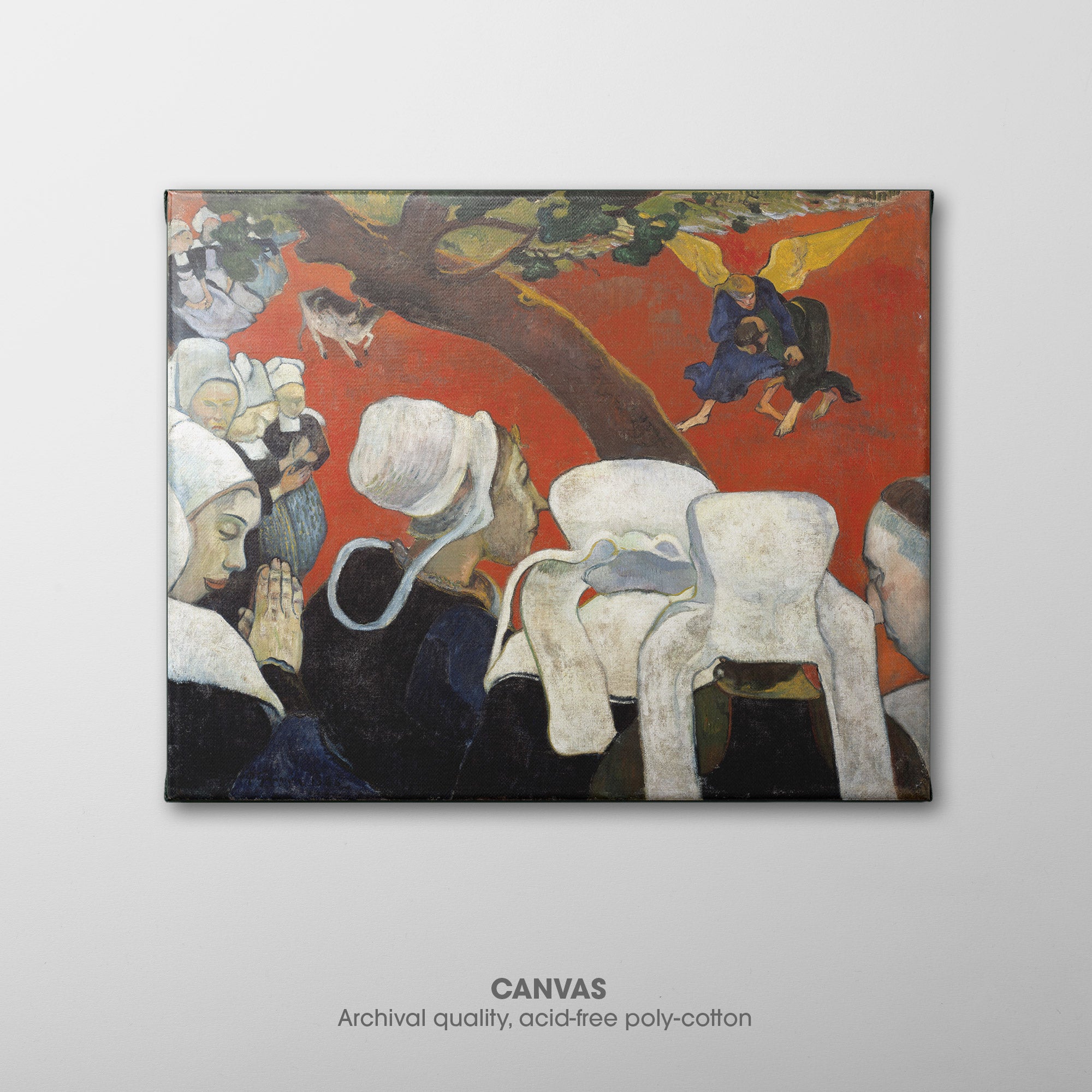
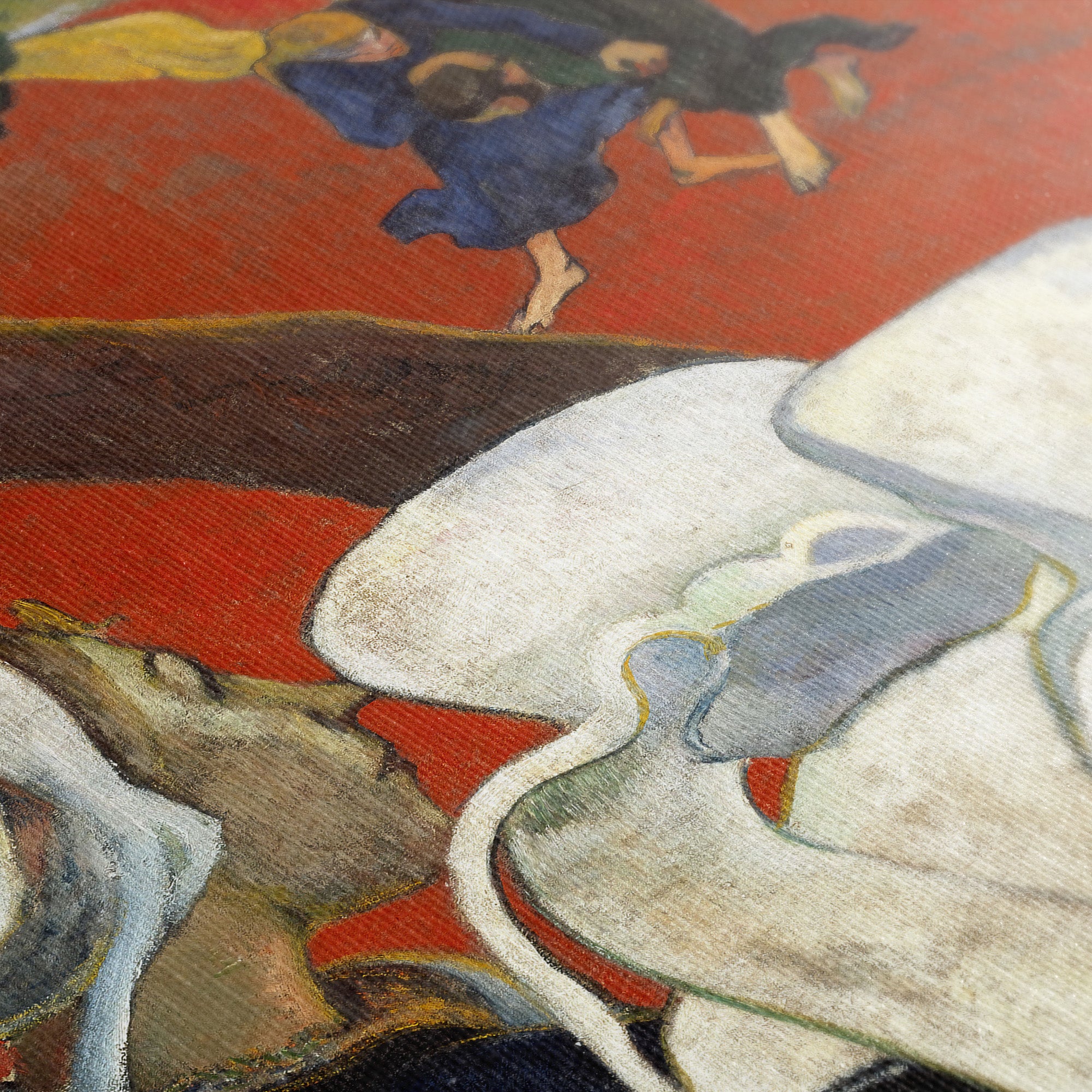 Vision after the Sermon (Jacob Wrestling with the Angel) (1888) by Paul Gauguin depicts a scene from the Bible in which Jacob wrestles an angel (Genesis 32:22-31), seen as a vision after a sermon in church by a group of Breton women ➵
Vision after the Sermon (Jacob Wrestling with the Angel) (1888) by Paul Gauguin depicts a scene from the Bible in which Jacob wrestles an angel (Genesis 32:22-31), seen as a vision after a sermon in church by a group of Breton women ➵◰ Canvas Reproductions
⧈ Framed Art Prints -
The Painter of Sunflowers ☰ Gauguin ☷ Canvas

 The Painter of Sunflowers (1888) by Paul Gauguin depicts Vincent van Gogh at work in front of a canvas and easel, painting a vase full of sunflowers sitting on a small round table. Gauguin and van Gogh stayed together in The Yellow ➵
The Painter of Sunflowers (1888) by Paul Gauguin depicts Vincent van Gogh at work in front of a canvas and easel, painting a vase full of sunflowers sitting on a small round table. Gauguin and van Gogh stayed together in The Yellow ➵◰ Canvas Reproductions
⧈ Framed Art Prints -
The Loss of Virginity ☳ Gauguin ☲ Canvas
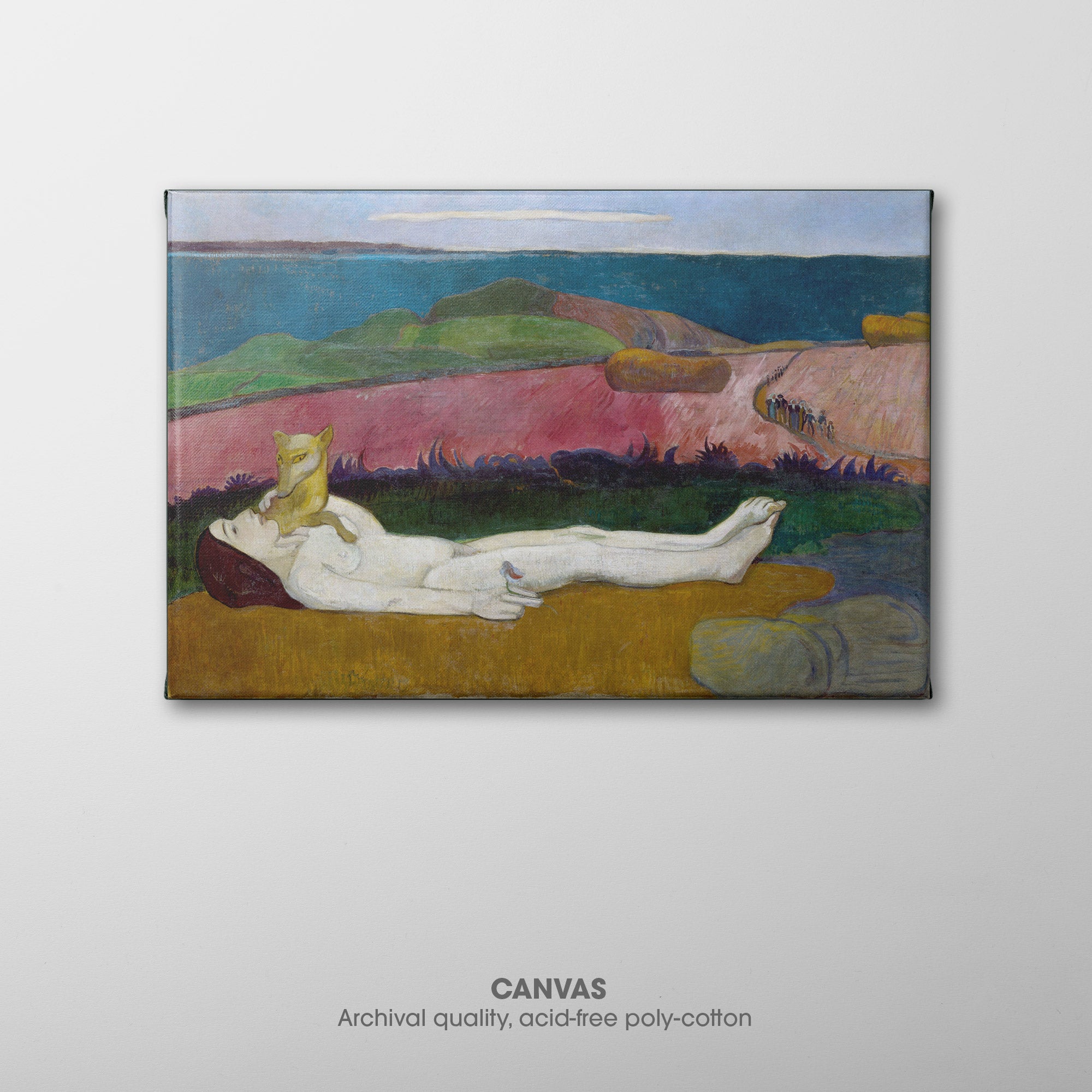
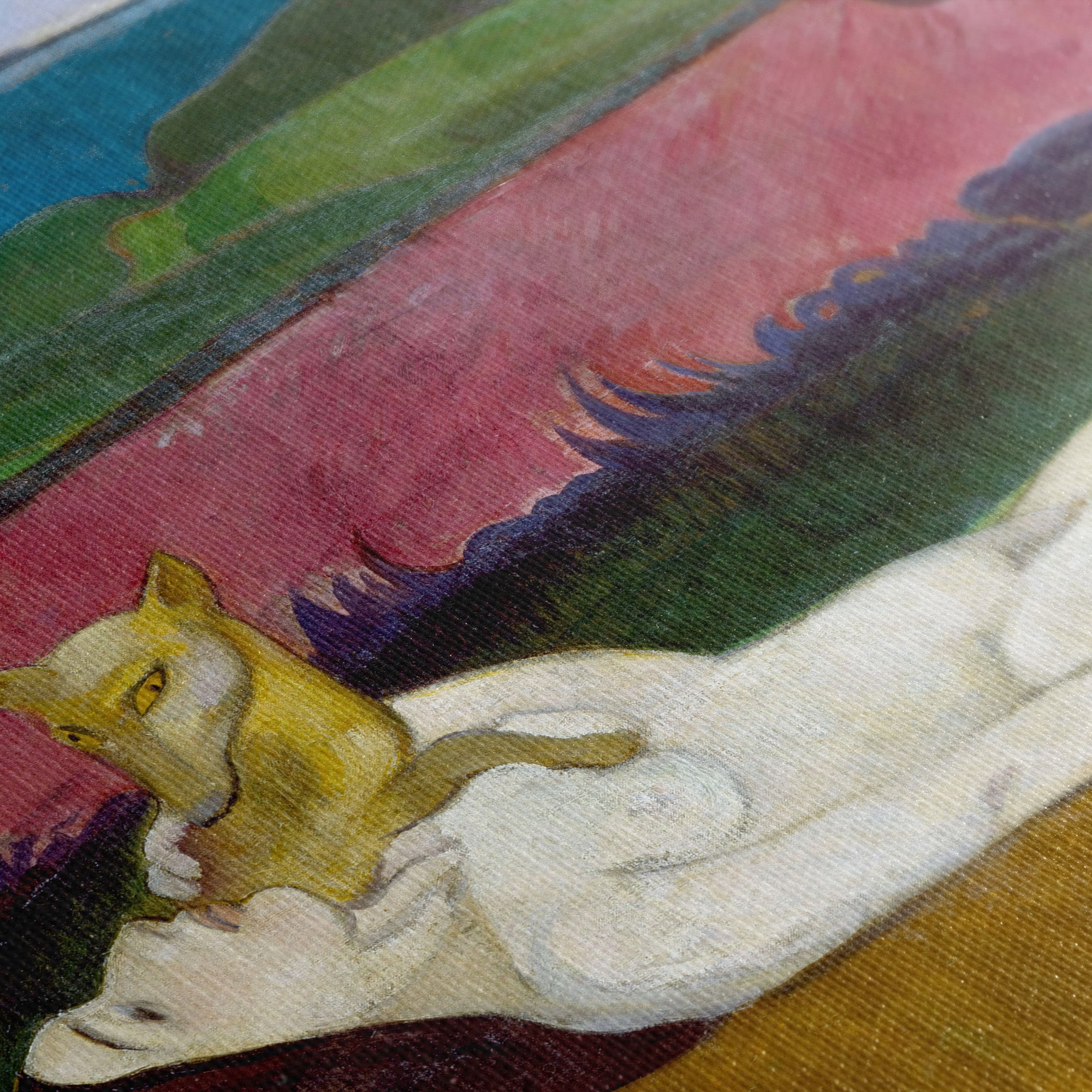 The Loss of Virginity (The Awakening of Spring) (1891, La Perte de Virginité, le Réveil du Printemps) by Paul Gauguin symbolically depicts a young woman's loss of virginity. The woman is laying naked in a Breton field overlooking the ocean, plucked flower ➵
The Loss of Virginity (The Awakening of Spring) (1891, La Perte de Virginité, le Réveil du Printemps) by Paul Gauguin symbolically depicts a young woman's loss of virginity. The woman is laying naked in a Breton field overlooking the ocean, plucked flower ➵◰ Canvas Reproductions
⧈ Framed Art Prints -
In the Waves ☵ Gauguin ☷ Canvas
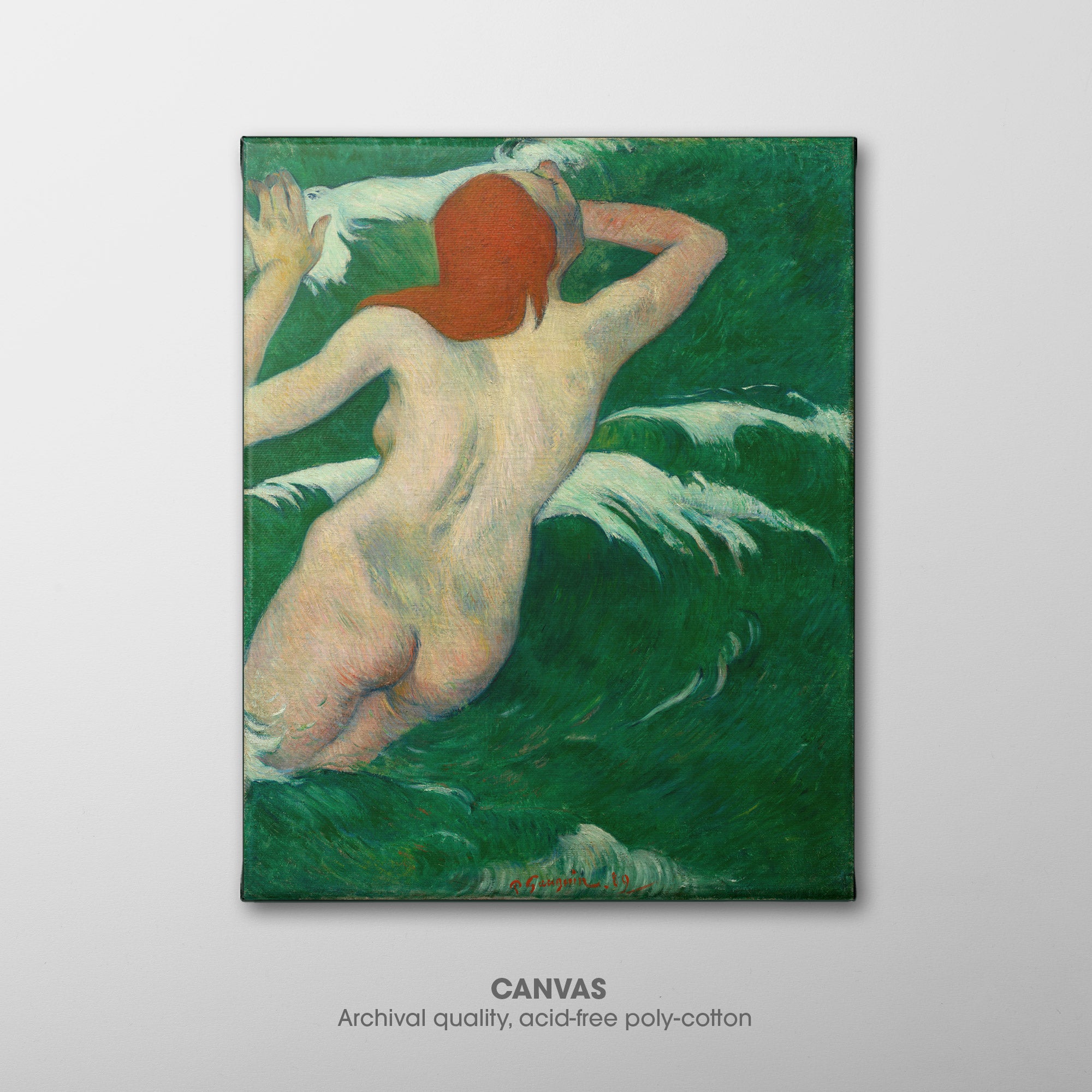
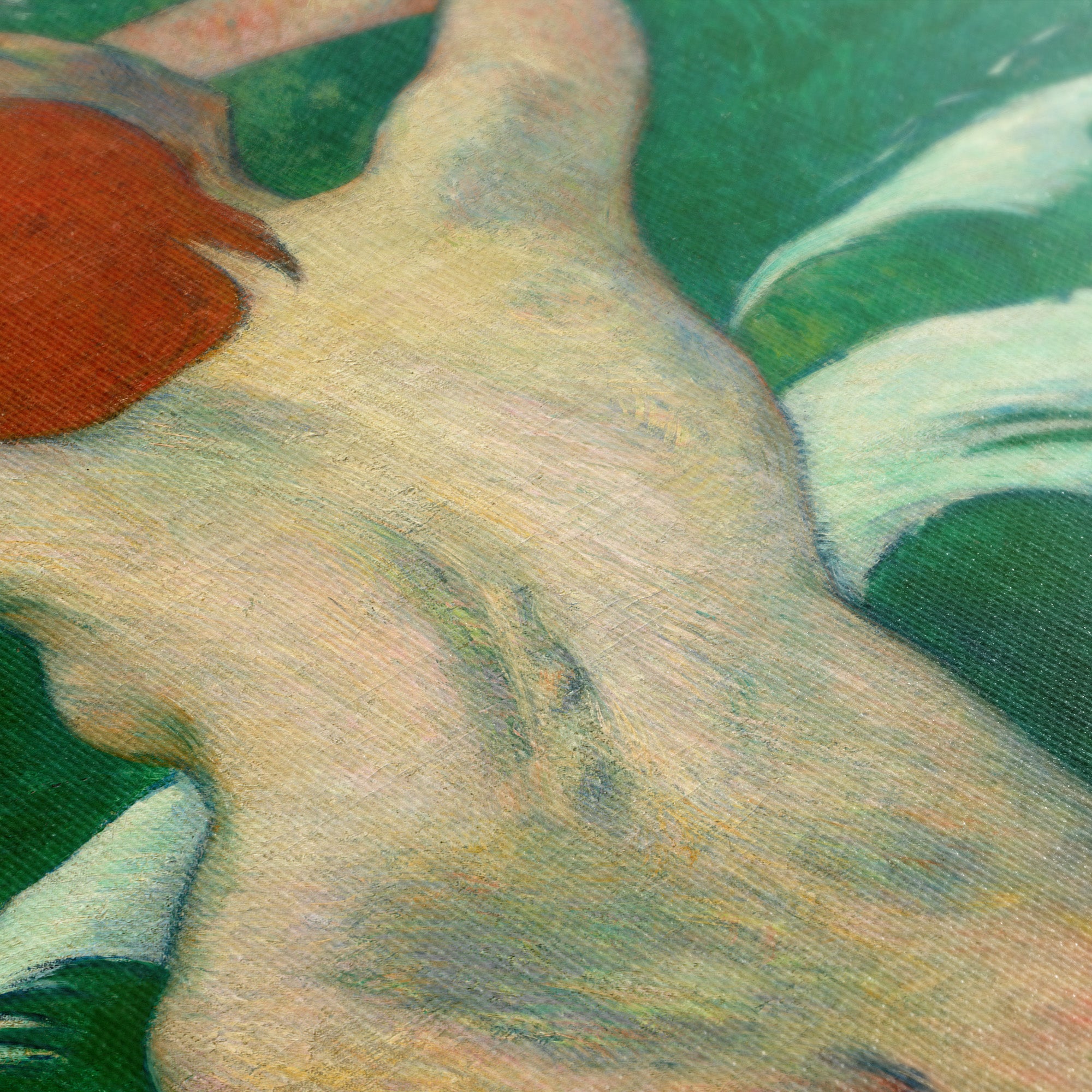 In the Waves (1889, Dans les Vagues) by Paul Gauguin was created during his time in a small coastal village called Pont-Aven where he sought to immerse himself in nature and escape modern civilization. It depicts a nude figure throwing herself into ➵
In the Waves (1889, Dans les Vagues) by Paul Gauguin was created during his time in a small coastal village called Pont-Aven where he sought to immerse himself in nature and escape modern civilization. It depicts a nude figure throwing herself into ➵◰ Canvas Reproductions
⧈ Framed Art Prints -
Two Tahitian Women ☷ Gauguin ☲ Canvas

 Two Tahitian Women (1899) by Paul Gauguin depicts two topless women, one holding mango blossoms, surrounded by green foliage. It reflects his fascination with Tahitian culture and his exploration of beauty and femininity. Evoking classical nudes and relying on gesture and facial ➵
Two Tahitian Women (1899) by Paul Gauguin depicts two topless women, one holding mango blossoms, surrounded by green foliage. It reflects his fascination with Tahitian culture and his exploration of beauty and femininity. Evoking classical nudes and relying on gesture and facial ➵◰ Canvas Reproductions
⧈ Framed Art Prints -
Anxiety ☳ Munch ☵ Canvas

 Anxiety (1894) by Edvard Munch is one of several similar works depicting a strong emotional reaction to a sunset overlooking the Oslo fjord. Going for a walk at sunset, Munch saw the setting sun turn the clouds red: "the sunset was particularly ➵
Anxiety (1894) by Edvard Munch is one of several similar works depicting a strong emotional reaction to a sunset overlooking the Oslo fjord. Going for a walk at sunset, Munch saw the setting sun turn the clouds red: "the sunset was particularly ➵◰ Canvas Reproductions
⧈ Framed Art Prints -
Love and Pain ☲ Munch ☵ Canvas
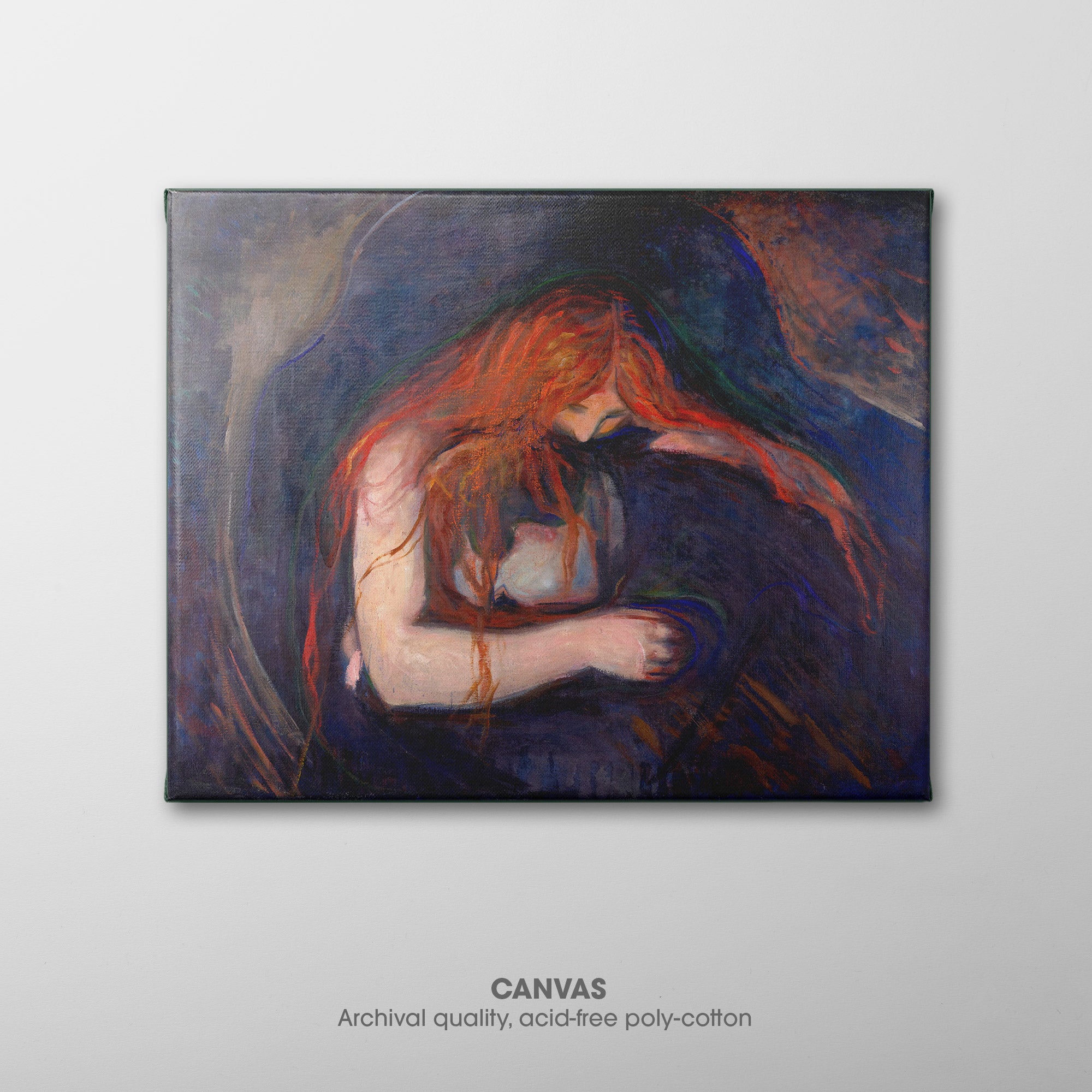
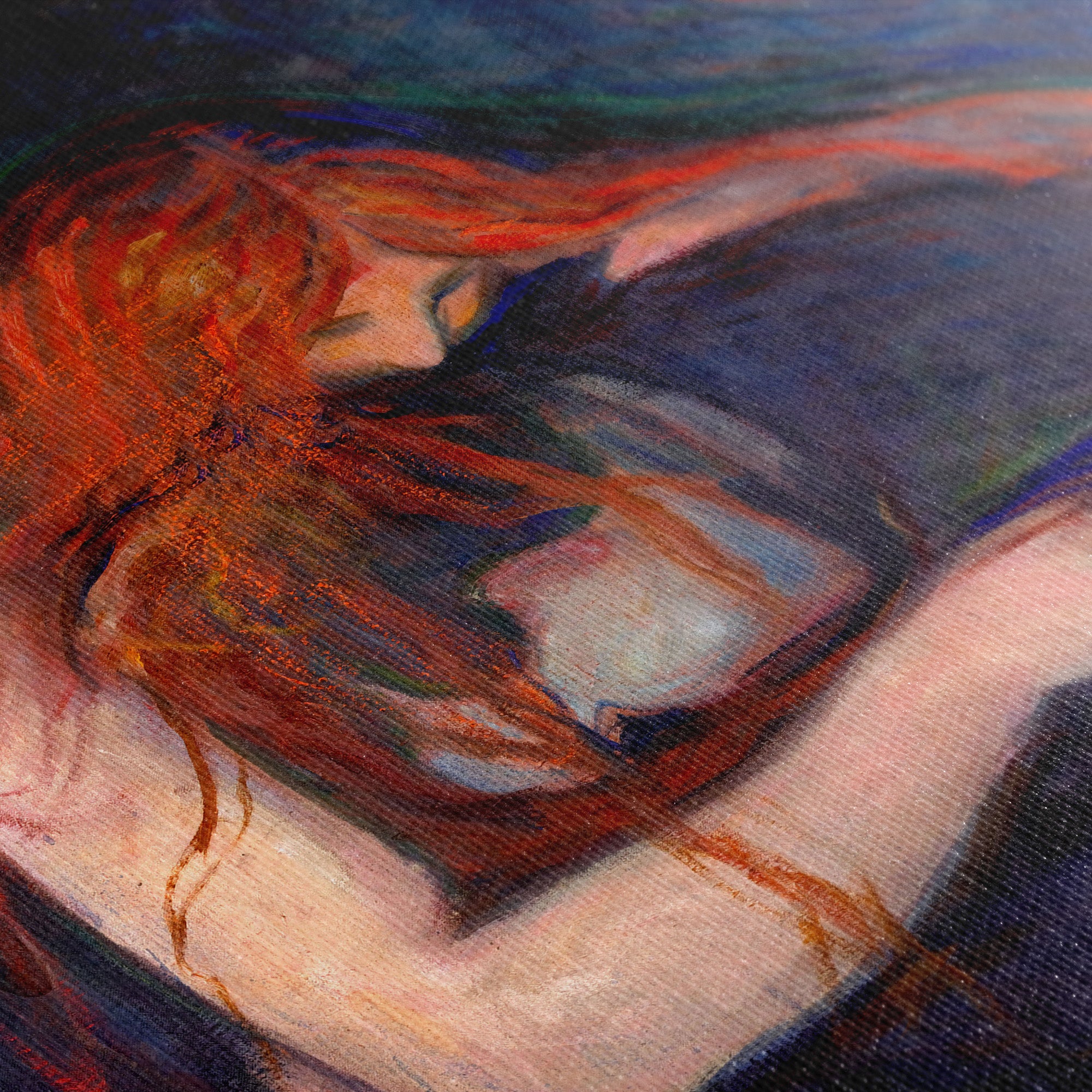 Love and Pain (1895) by Edvard Munch, also referred to as Vampire (though not by Munch), is one of six different versions created between 1893 and 1895. It depicts a woman with bright red hair embracing a man, and kissing his neck. ➵
Love and Pain (1895) by Edvard Munch, also referred to as Vampire (though not by Munch), is one of six different versions created between 1893 and 1895. It depicts a woman with bright red hair embracing a man, and kissing his neck. ➵◰ Canvas Reproductions
⧈ Framed Art Prints -
The Sun ☰ Munch ☲ Canvas
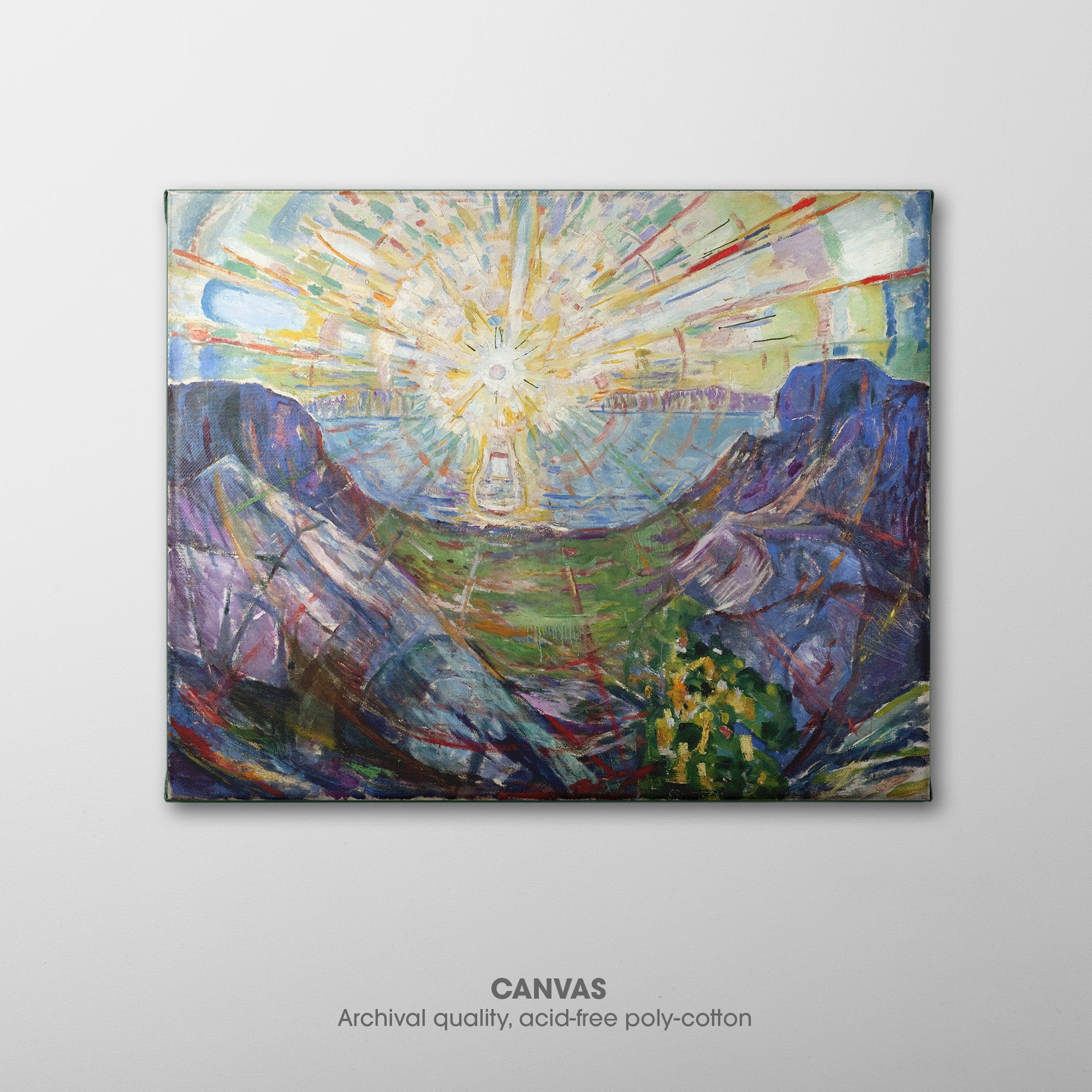
 The Sun (1911) by Edvard Munch is one of many works created in the planning for murals for the University of Oslo's ceremonial hall. It was his first major commission for a public institution, for which he made several hundred preparatory drawings ➵
The Sun (1911) by Edvard Munch is one of many works created in the planning for murals for the University of Oslo's ceremonial hall. It was his first major commission for a public institution, for which he made several hundred preparatory drawings ➵◰ Canvas Reproductions
⧈ Framed Art Prints -
Life is a Struggle ☵ Klimt ☲ Canvas
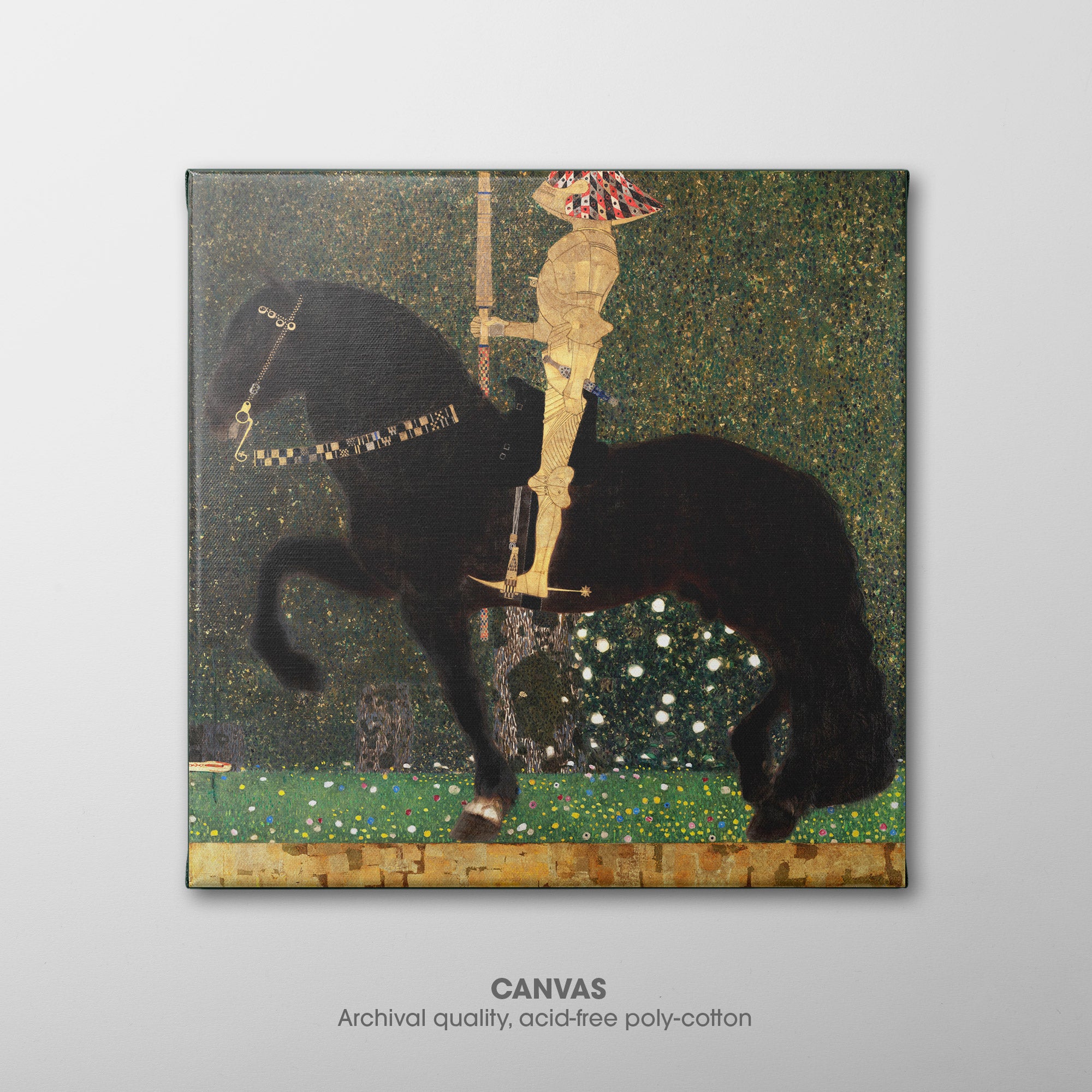
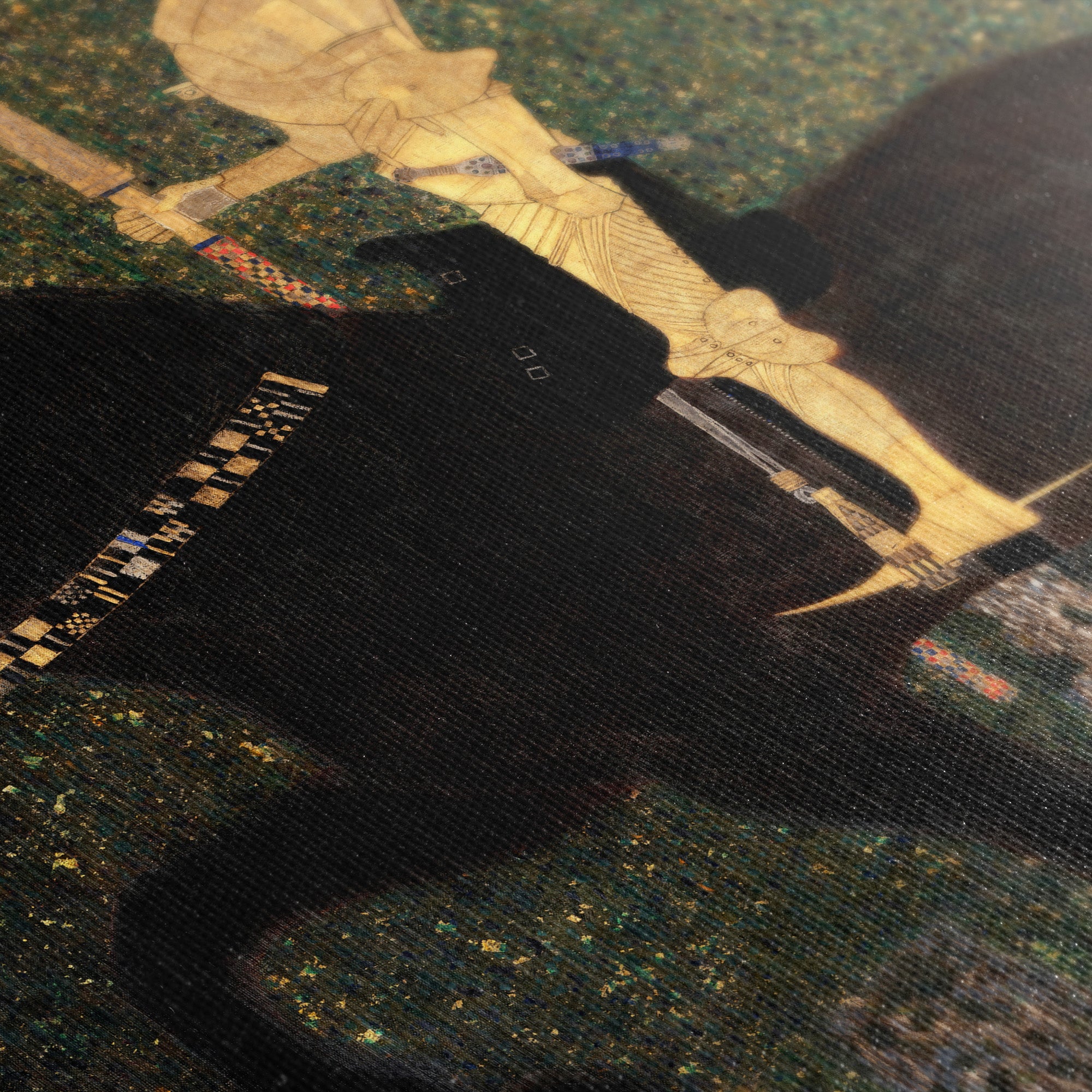 Life is a Struggle (1903) by Gustav Klimt, also known as The Golden Knight, depicts a knight in golden armor confronted by a snake. The knight and his horse are richly detailed, decorated in diamond and square patterns, against an intricate backdrop ➵
Life is a Struggle (1903) by Gustav Klimt, also known as The Golden Knight, depicts a knight in golden armor confronted by a snake. The knight and his horse are richly detailed, decorated in diamond and square patterns, against an intricate backdrop ➵◰ Canvas Reproductions
⧈ Framed Art Prints -
Flowering Poppies ☲ Klimt ☷ Canvas

 Flowering Poppies (1907) by Gustav Klimt, also known as Poppy Field, depicts a meadow filled with red poppies, which includes several fruit trees that visually merge with the dominant poppy field. The dense foreground gives way to a panoramic horizon, with a ➵
Flowering Poppies (1907) by Gustav Klimt, also known as Poppy Field, depicts a meadow filled with red poppies, which includes several fruit trees that visually merge with the dominant poppy field. The dense foreground gives way to a panoramic horizon, with a ➵◰ Canvas Reproductions
⧈ Framed Art Prints -
Adele Bloch-Bauer I ☶ Klimt ☲ Canvas

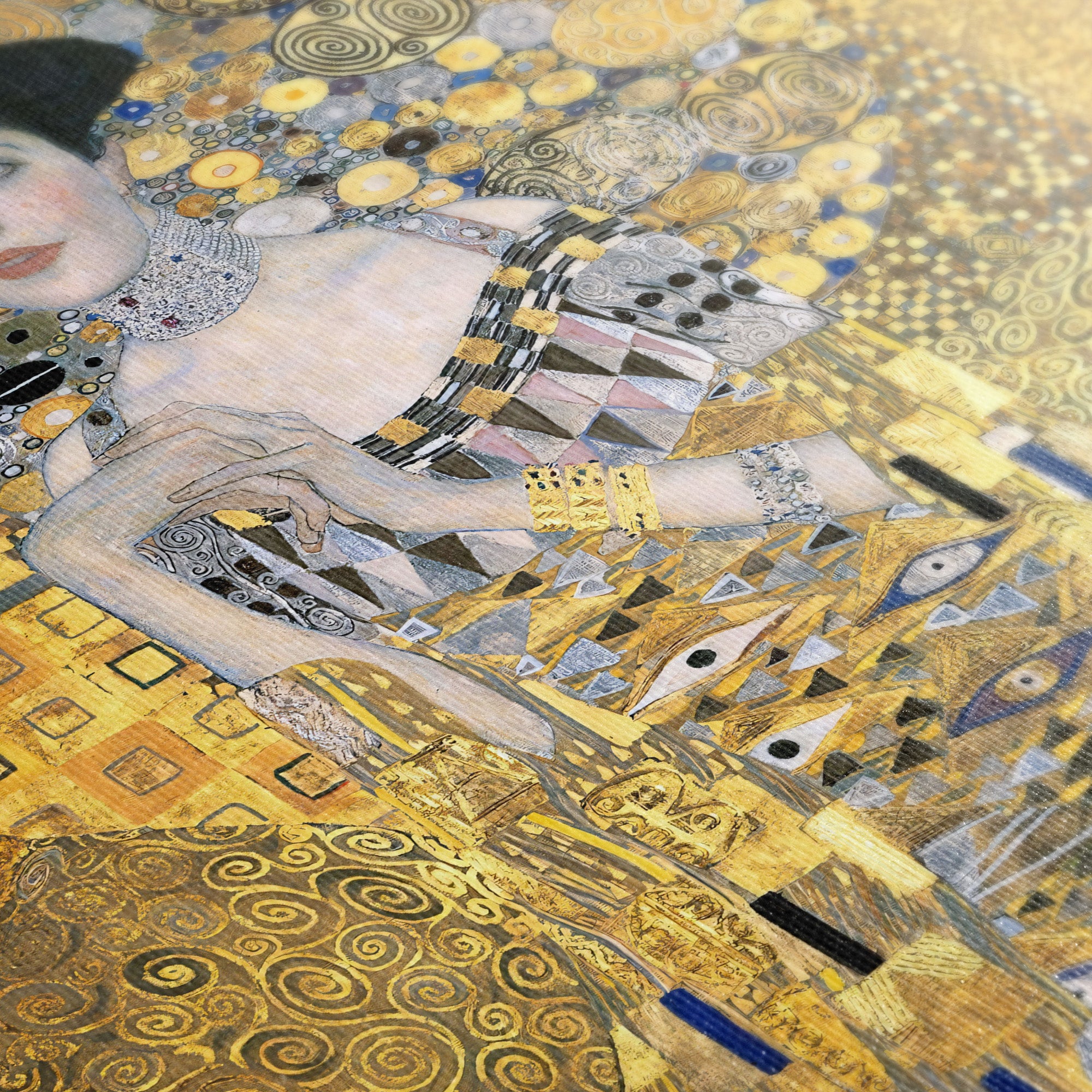 Portrait of Adele Bloch-Bauer I (1907) by Gustav Klimt, also called The Lady in Gold or The Woman in Gold, depicts Adele Bloch-Bauer in a dress adorned with different mosaics, sitting on a golden throne, in front of a golden background. It ➵
Portrait of Adele Bloch-Bauer I (1907) by Gustav Klimt, also called The Lady in Gold or The Woman in Gold, depicts Adele Bloch-Bauer in a dress adorned with different mosaics, sitting on a golden throne, in front of a golden background. It ➵◰ Canvas Reproductions
⧈ Framed Art Prints -
Beech Grove I ☷ Klimt ☴ Canvas
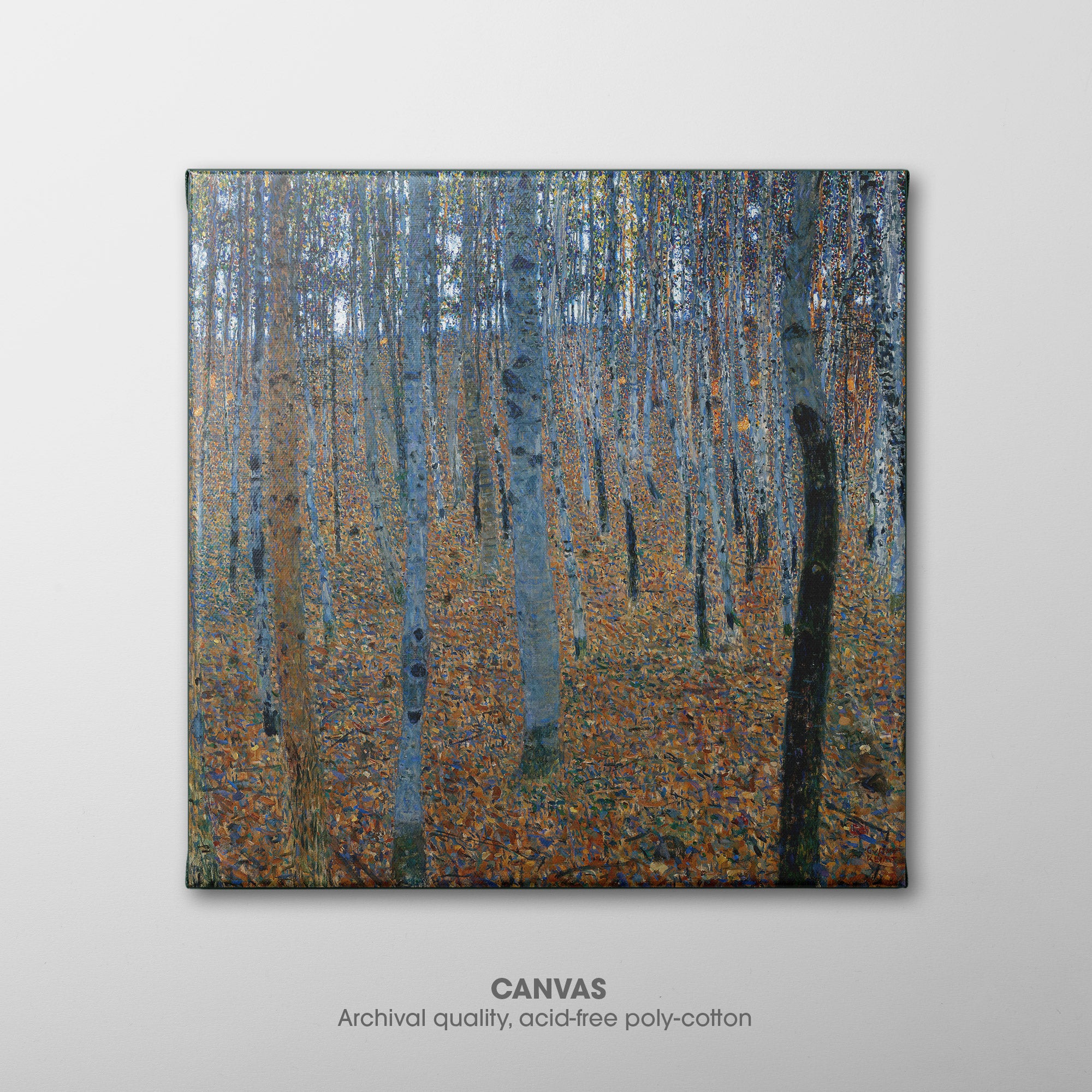
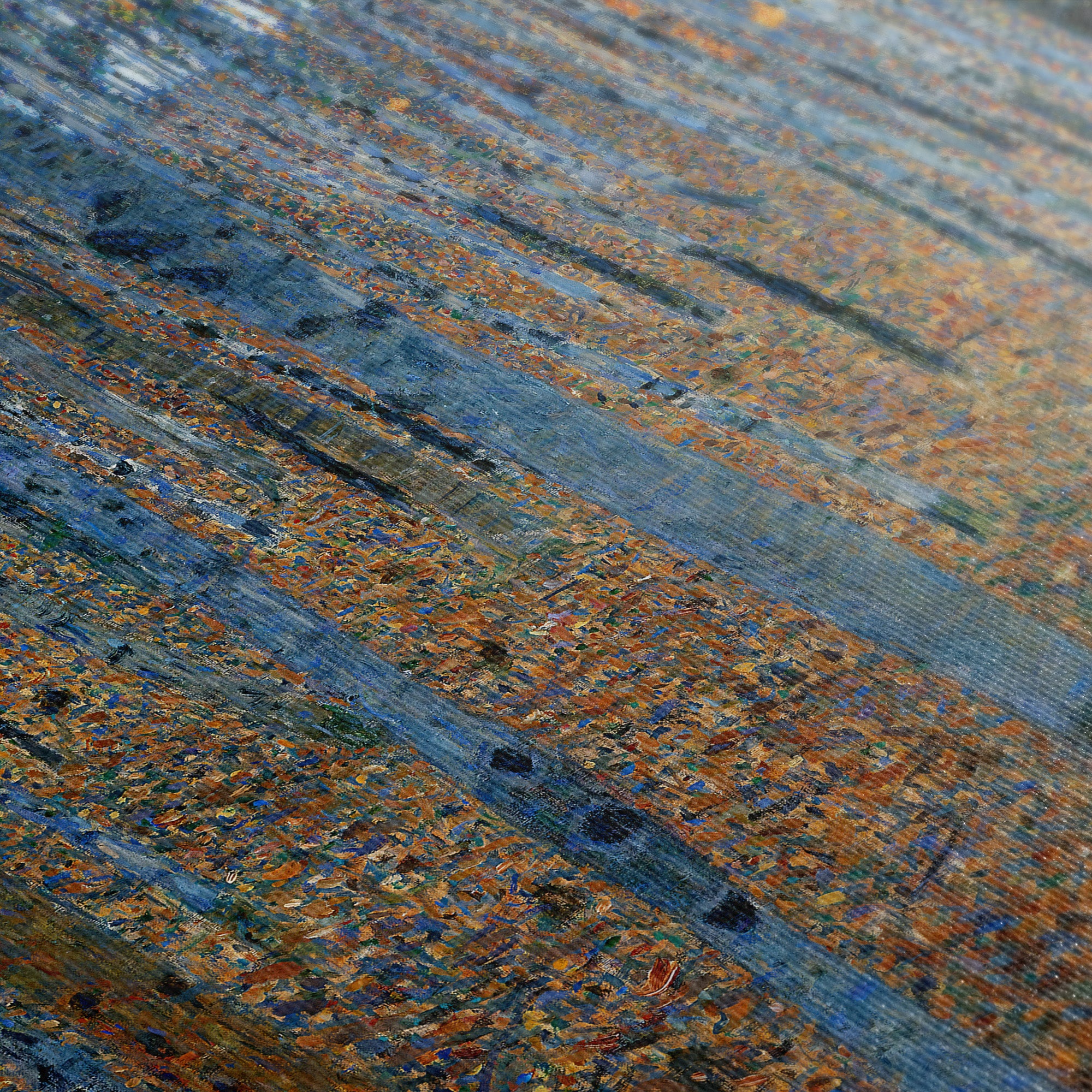 Beech Grove I (1902) by Gustav Klimt depicts a dense grove of beech trees. Klimt is not primarily known for landscapes, and as it lacks a vanishing point, this is not a traditional landscape. The tree trunks are adorned with intricate patterns ➵
Beech Grove I (1902) by Gustav Klimt depicts a dense grove of beech trees. Klimt is not primarily known for landscapes, and as it lacks a vanishing point, this is not a traditional landscape. The tree trunks are adorned with intricate patterns ➵◰ Canvas Reproductions
⧈ Framed Art Prints -
Fräulein Lieser ☴ Klimt ☶ Canvas

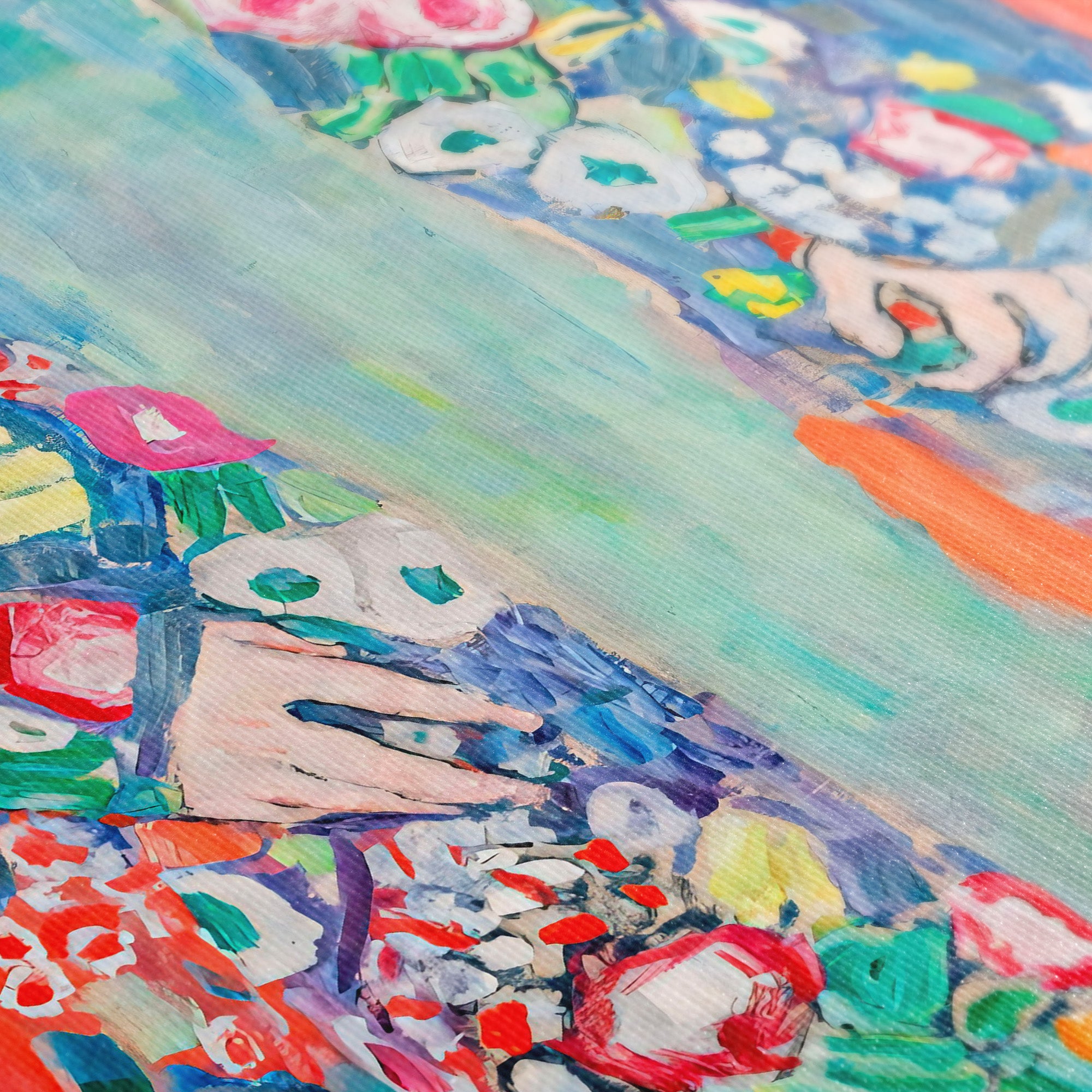 Portrait of Fräulein Lieser (1917) by Gustav Klimt was left unsigned in his studio when he died in 1918. The background of the painting has faintly pencilled shapes, suggesting that he intended to continue making elaborations. It was presumed lost until it ➵
Portrait of Fräulein Lieser (1917) by Gustav Klimt was left unsigned in his studio when he died in 1918. The background of the painting has faintly pencilled shapes, suggesting that he intended to continue making elaborations. It was presumed lost until it ➵◰ Canvas Reproductions
⧈ Framed Art Prints -
Madonna ☴ Munch ☱ Canvas
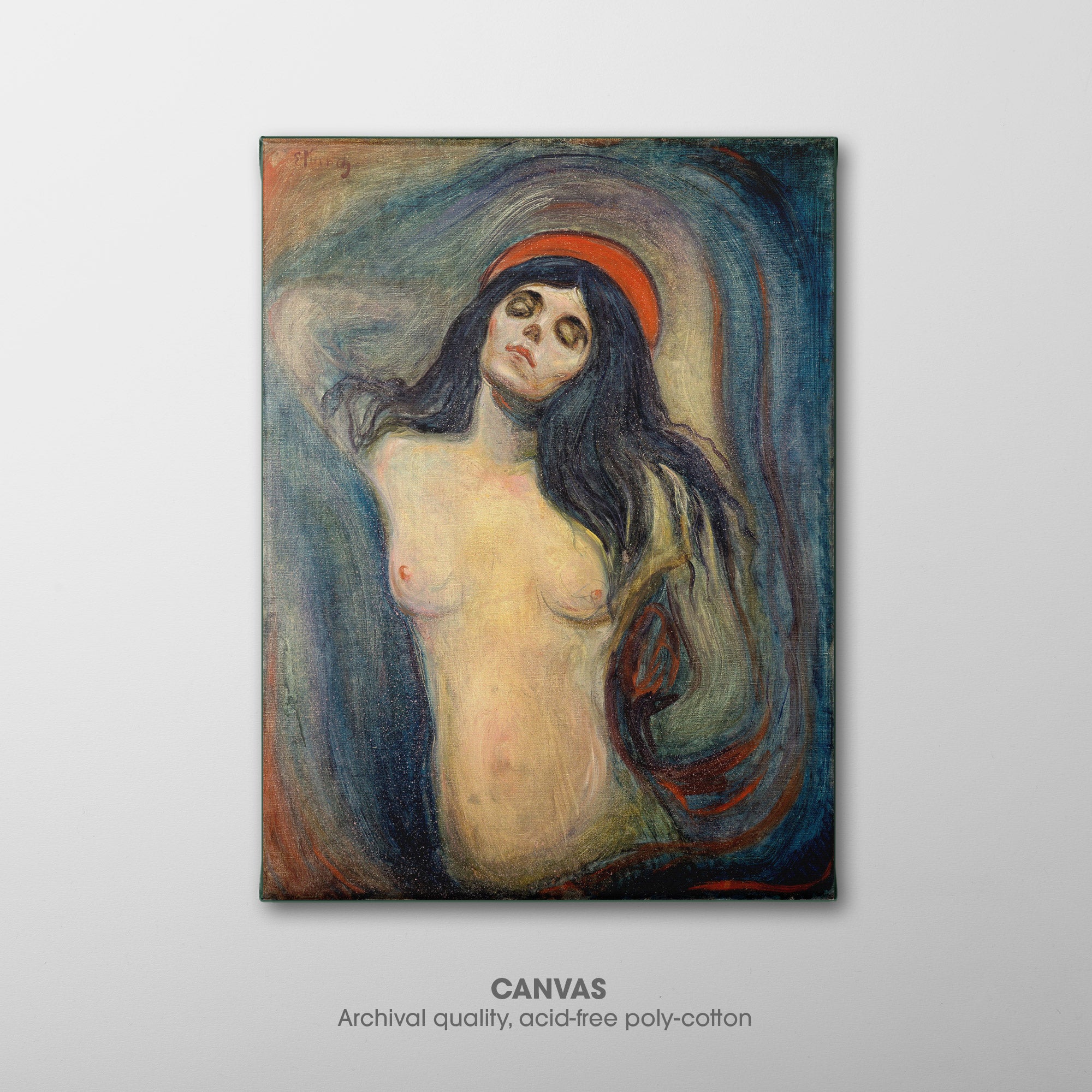
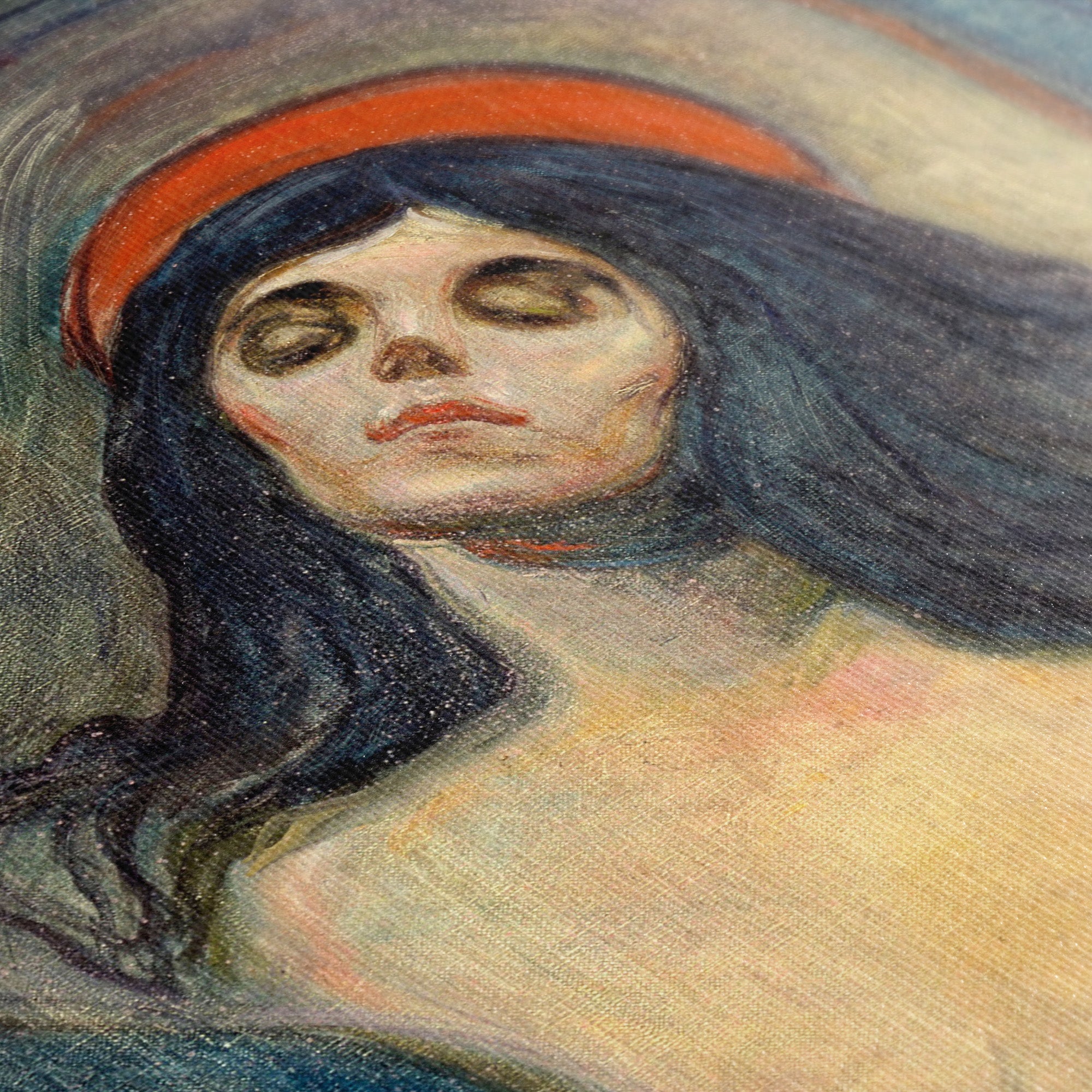 Madonna (1894) by Edvard Munch depicts a nude female figure, interpreted as a possible representation of the Virgin Mary, though he is not known for religious artwork. Munch created two other versions and a lithograph, and used both Loving Woman and Madonna ➵
Madonna (1894) by Edvard Munch depicts a nude female figure, interpreted as a possible representation of the Virgin Mary, though he is not known for religious artwork. Munch created two other versions and a lithograph, and used both Loving Woman and Madonna ➵◰ Canvas Reproductions
⧈ Framed Art Prints -
The Scream (1893) ☵ Munch ☲ Canvas
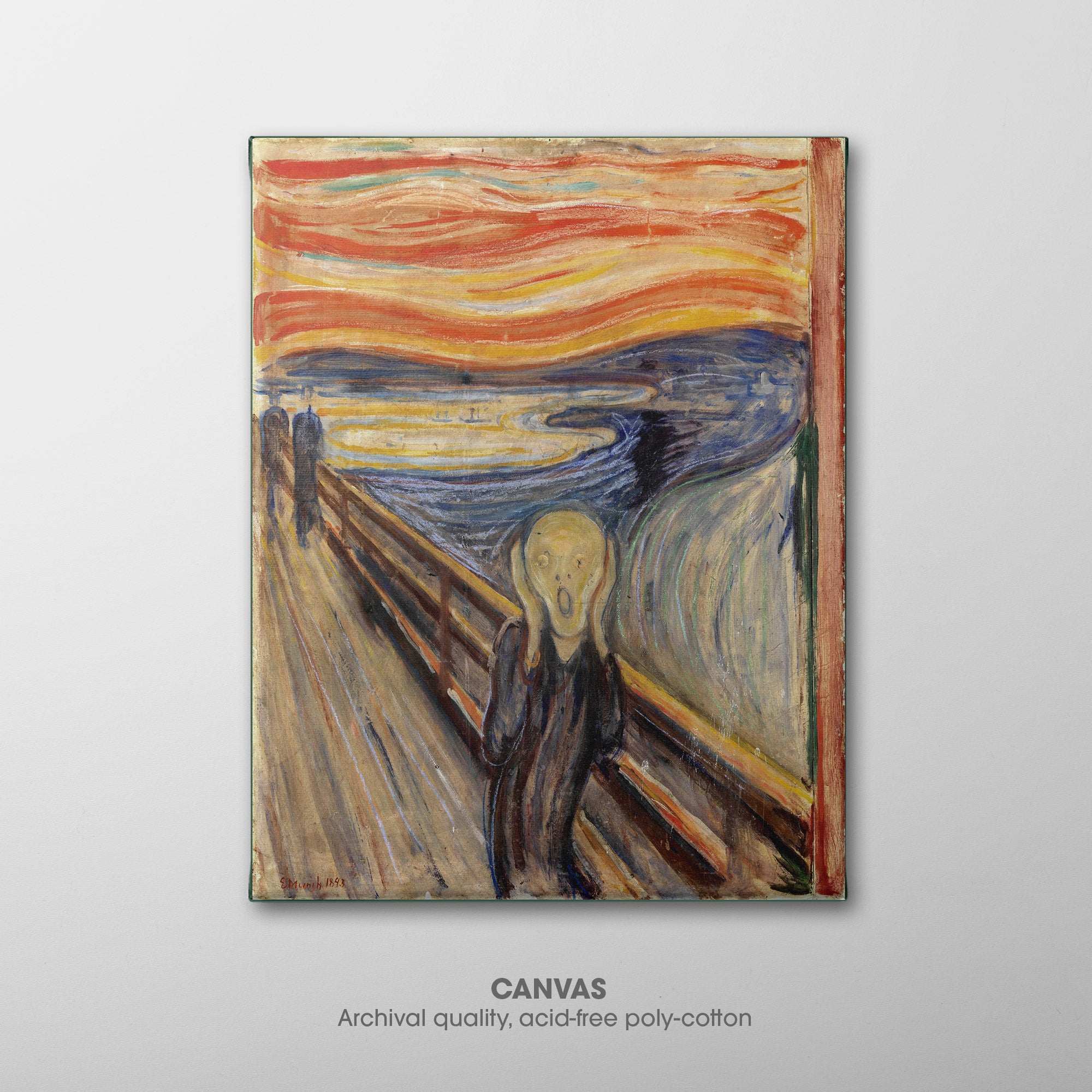
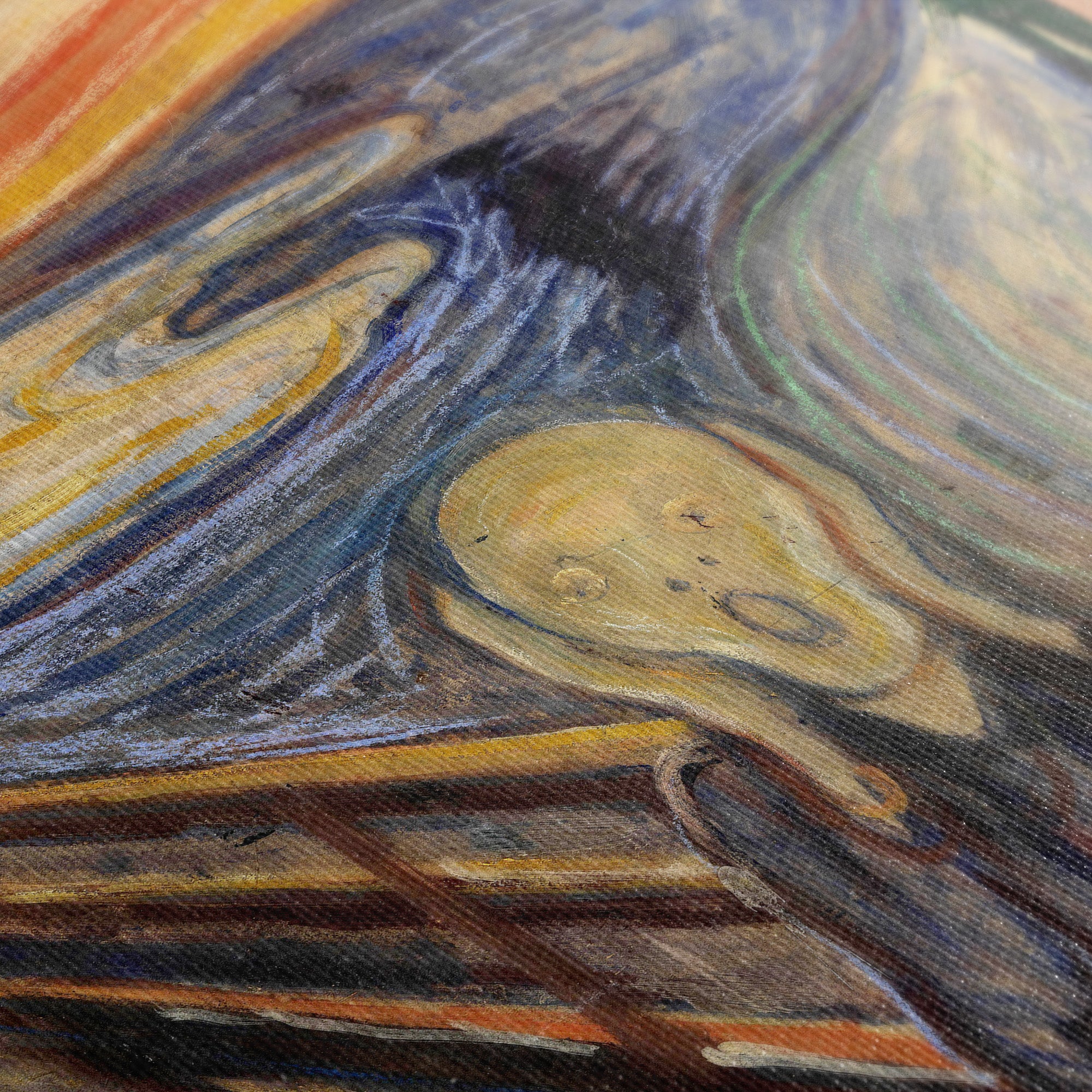 The Scream (1893) by Edvard Munch is one of the most iconic images in art, symbolizing anxiety, surprise, shock, terror and despair. The Norwegian name is Skrik (Scream), and the German title when first exhibited was Der Schrei der Natur (The Scream ➵
The Scream (1893) by Edvard Munch is one of the most iconic images in art, symbolizing anxiety, surprise, shock, terror and despair. The Norwegian name is Skrik (Scream), and the German title when first exhibited was Der Schrei der Natur (The Scream ➵◰ Canvas Reproductions
⧈ Framed Art Prints -
Self-Portrait ☷ Gauguin ☰ Canvas
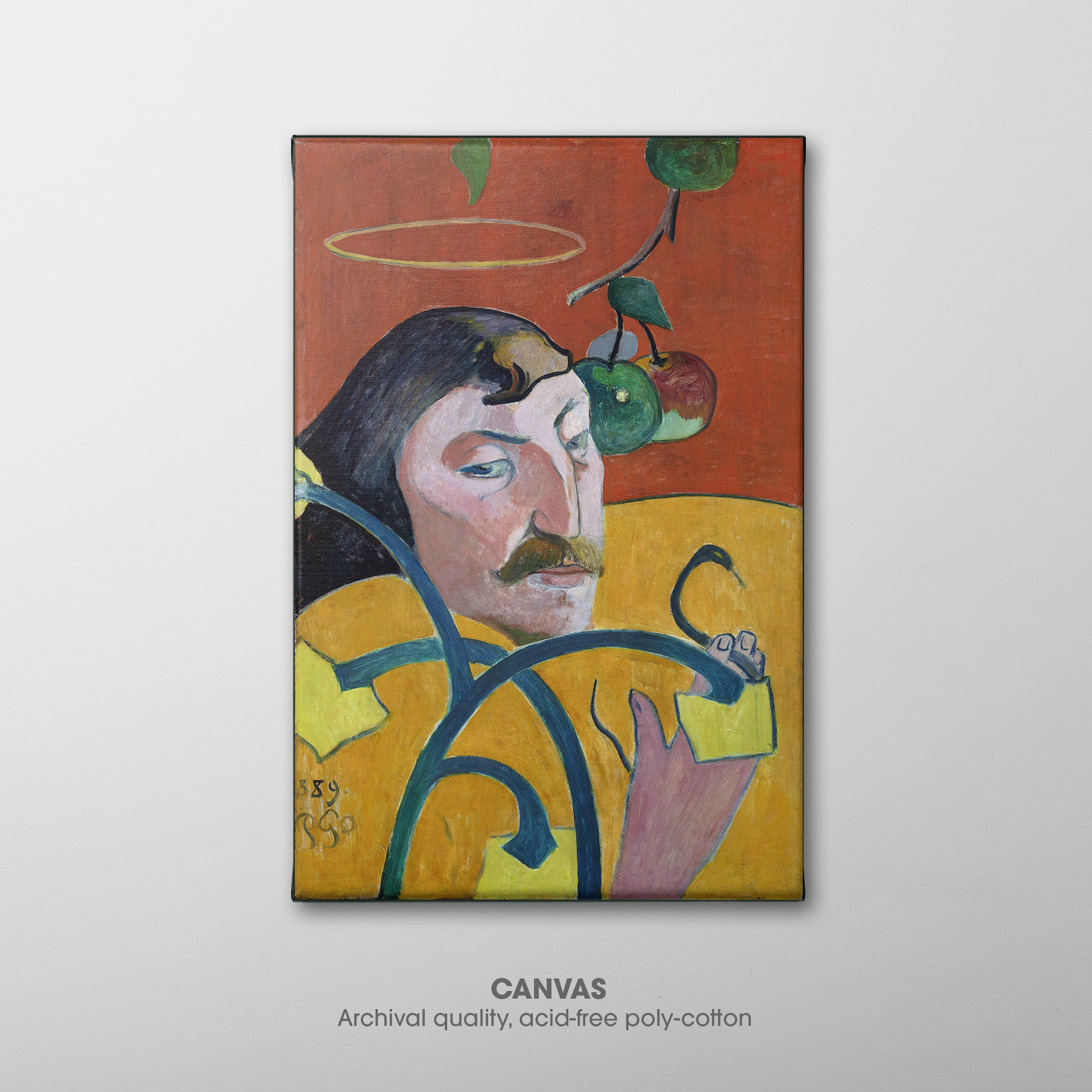
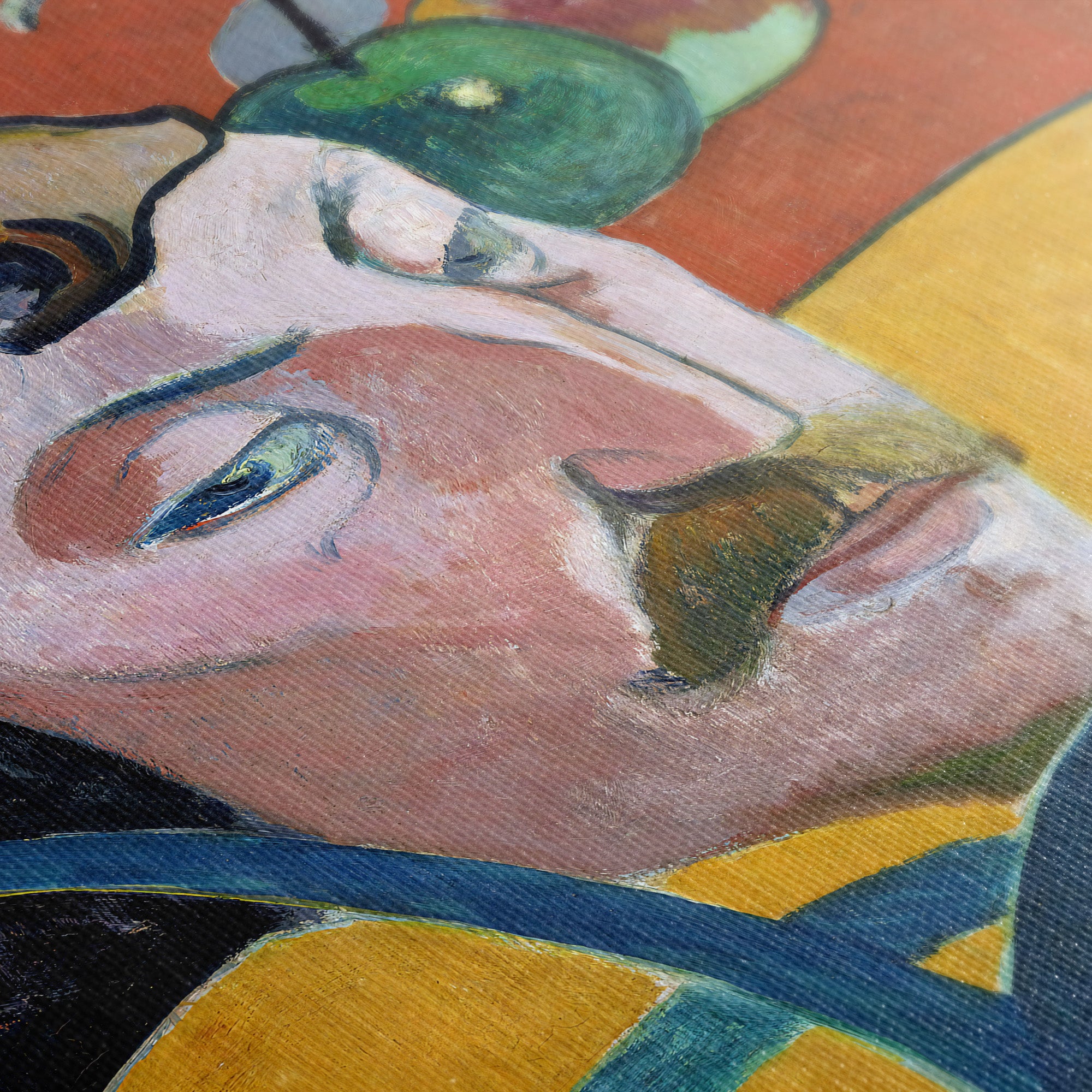 Self-Portrait with Halo and Snake (1889) by Paul Gauguin is one of more than 40 self-portraits he completed during his lifetime. This portrait demonstrates his use of religious symbolism, and the influence of Japanese wood-block prints. Gauguin divides the canvas in half, ➵
Self-Portrait with Halo and Snake (1889) by Paul Gauguin is one of more than 40 self-portraits he completed during his lifetime. This portrait demonstrates his use of religious symbolism, and the influence of Japanese wood-block prints. Gauguin divides the canvas in half, ➵◰ Canvas Reproductions
⧈ Framed Art Prints -
The Wave ☳ Gauguin ☵ Canvas

 The Wave (1888, La Vague) by Paul Gauguin was painted during a trip to Brittany, France. It characterizes his evolving style from realistic portraits and landscapes to more symbolic representations. The perspective and scale, lack of horizon, and rainbow of color open ➵
The Wave (1888, La Vague) by Paul Gauguin was painted during a trip to Brittany, France. It characterizes his evolving style from realistic portraits and landscapes to more symbolic representations. The perspective and scale, lack of horizon, and rainbow of color open ➵◰ Canvas Reproductions
⧈ Framed Art Prints -
Death and Life ☲ Klimt ☷ Canvas
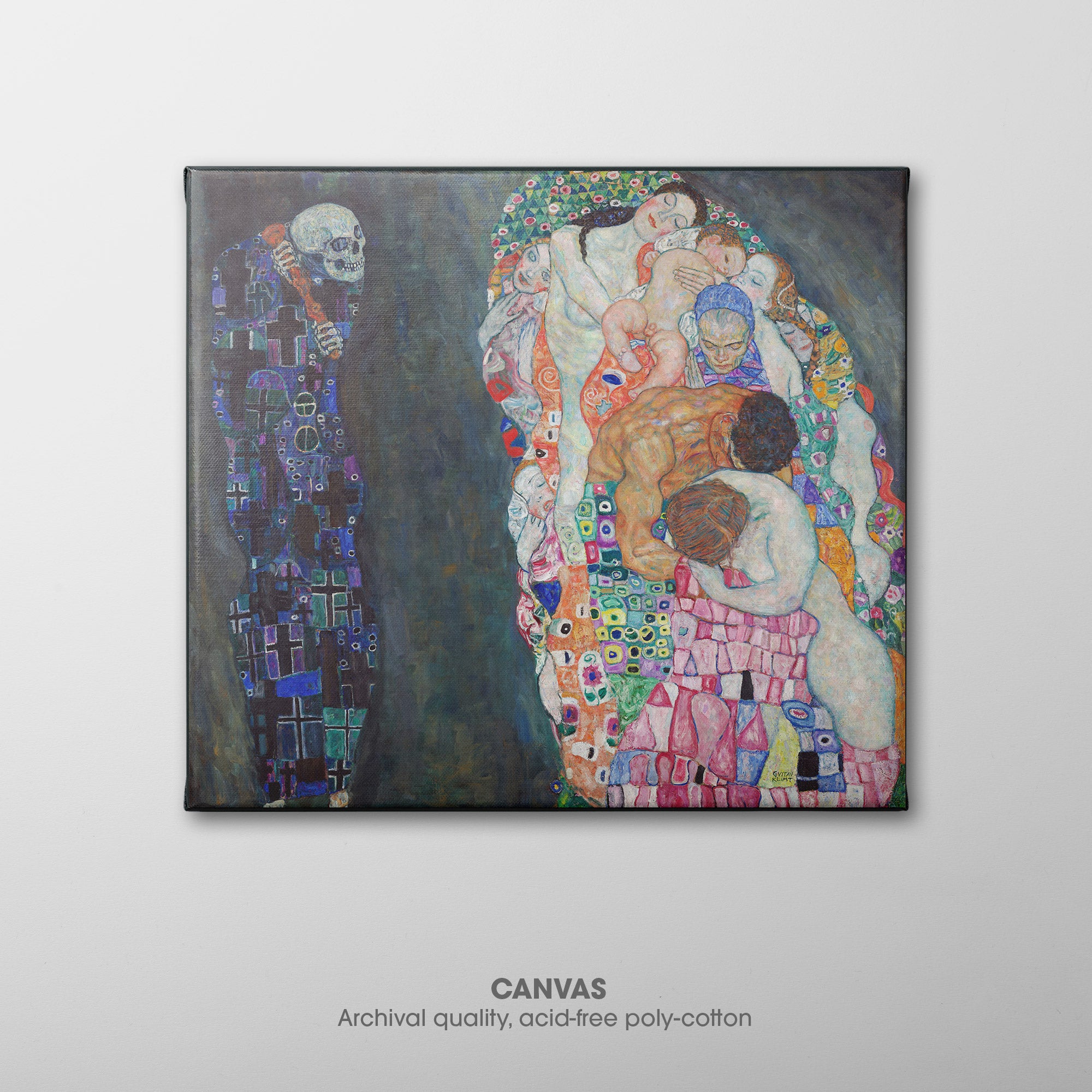
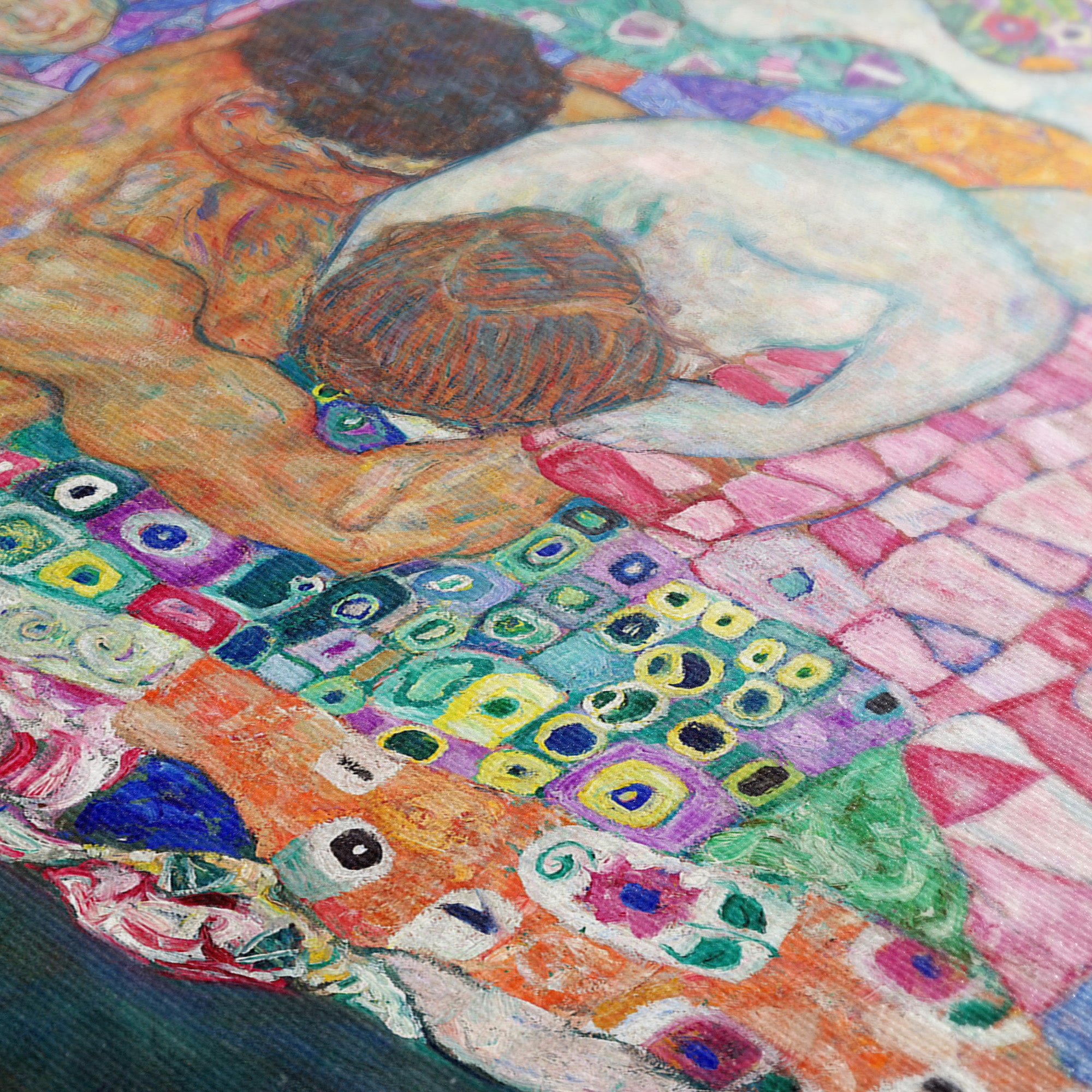 Death and Life (1915) by Gustav Klimt is regarded as one of his greatest allegories - he described it as his most important figurative work. A menacing Grim Reaper with cudgel watches over a vibrant display of all stages of life, including ➵
Death and Life (1915) by Gustav Klimt is regarded as one of his greatest allegories - he described it as his most important figurative work. A menacing Grim Reaper with cudgel watches over a vibrant display of all stages of life, including ➵◰ Canvas Reproductions
⧈ Framed Art Prints ⨳ Blankets -
The Kiss ☲ Klimt ☰ Canvas
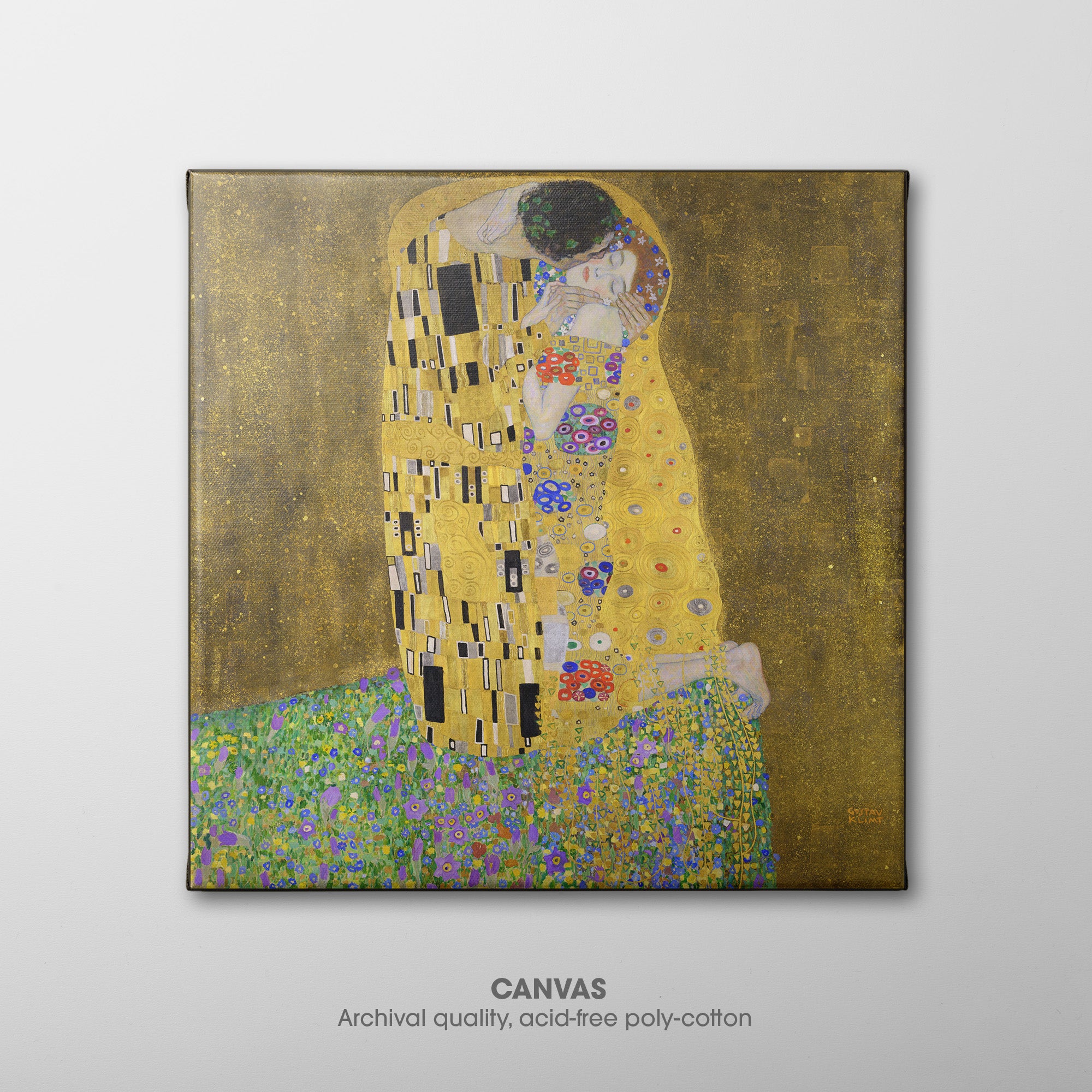
 The Kiss (1908) by Gustav Klimt is considered to be one of Klimt's most important works, and is certainly the most well known. The painting depicts a couple embracing under intricate rectangular and floral patterned robes that reflect Art Nouveau as well ➵
The Kiss (1908) by Gustav Klimt is considered to be one of Klimt's most important works, and is certainly the most well known. The painting depicts a couple embracing under intricate rectangular and floral patterned robes that reflect Art Nouveau as well ➵◰ Canvas Reproductions
⧈ Framed Art Prints ⨳ Blankets









